Salamanca: A Cultural Odyssey in the Heart of Spain

Intro
Nestled in the heart of Spain's Castile and León region lies a city steeped in history, adorned with stunning architecture, and infused with a vibrant cultural spirit – Salamanca.
I invite you to embark on a virtual journey through the enchanting streets and captivating landmarks of this UNESCO World Heritage gem. In this comprehensive guide, I've curated everything you need to know to make the most of your visit to this enchanting city. From practical tips on transportation and accommodation to insights into local customs and traditions, I've got you covered at every step.
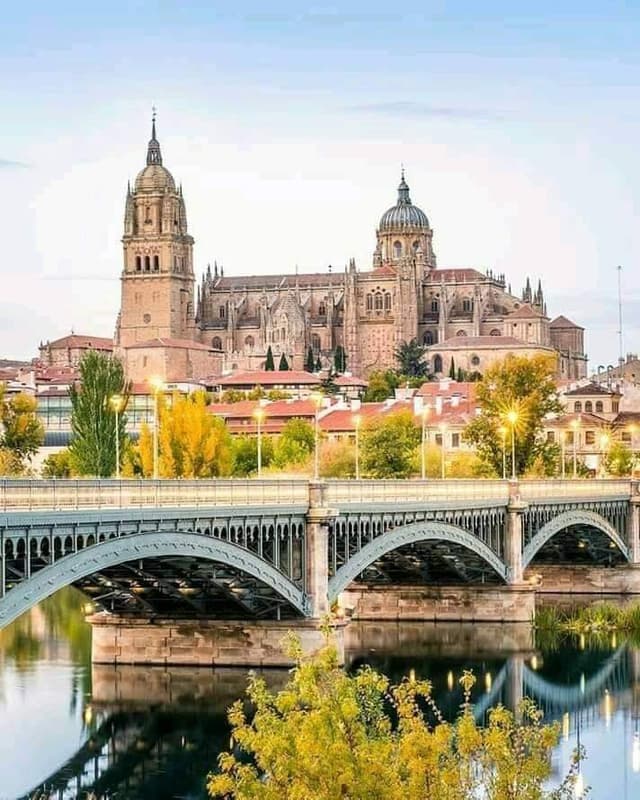
Why Salamanca?
My own experience here
I grew up in Salamanca, and from 1997 to 2007, it was my home base. I still visit every year and can confirm that there is something truly captivating about the city. The quality of the food and drinks, the incredible beauty of the city centre, the simplicity of the lifestyle, the sunny weather, and the fact that you can walk almost everywhere without needing a car. You will be enchanted by Salamanca and will undoubtedly leave a piece of your heart there.
Basic Info
● Currency: Euro (€)
● Language: Spanish.
● Time Zone: Central European Time (CET).
● Emergency Numbers: 112 for all emergencies.
● Working hours:
Shops open at 9 AM during the week, close for a lunch break from 1 PM to 4 PM, and shut down for the day between 6 and 8 PM, depending on the type of shop and the season.
Most shops only open for half a day on Saturdays and remain closed on Sundays and public holidays, including supermarkets.
● Voltage: 230V, 50Hz; Type C and Type F plugs.
Best Times to Travel
🌞 Climate Overview
Salamanca experiences a Mediterranean climate with continental influences. Summers are typically hot and dry, while winters are cold with occasional snowfall. Spring and autumn offer pleasant temperatures, making them ideal for exploring the city.
🌪️ Peak Tourist Seasons
The peak tourist seasons in Salamanca are during the summer months of June to August when the weather is warmest and the city comes alive with events and festivals. Another peak period is during Easter (Semana Santa) when religious processions and cultural events attract visitors. Additionally, the Christmas season sees an influx of tourists attracted to the festive atmosphere and holiday markets.
🧭 Recommended Times to Travel
The best months to visit Salamanca are during the shoulder seasons of spring (April to June) and autumn (September to November) when the weather is mild, and tourist crowds are thinner. These months offer comfortable temperatures for exploring the city's attractions without the heat and crowds of summer.
In September, Salamanca celebrates one of its most important public holidays, the Feast of Our Lady of La Vega, also known as the Virgen de la Vega. Held annually on the 8th of September, this religious festival pays homage to the city's patron saint, the Virgin Mary. The highlight of the celebration is a colourful procession that winds its way through the streets of Salamanca, adorned with floral offerings and accompanied by traditional music and dance.
Locals and visitors alike gather to witness this solemn yet joyful event, which serves as a symbol of faith and community spirit. Throughout the day, the city comes alive with festivities, including street performances, culinary delights, and cultural activities, creating a festive atmosphere that reverberates throughout Salamanca. It's a time for reflection, reverence, and revelry, as the people of Salamanca come together to honor their cherished traditions and heritage.
Sightseeing
● Plaza Mayor
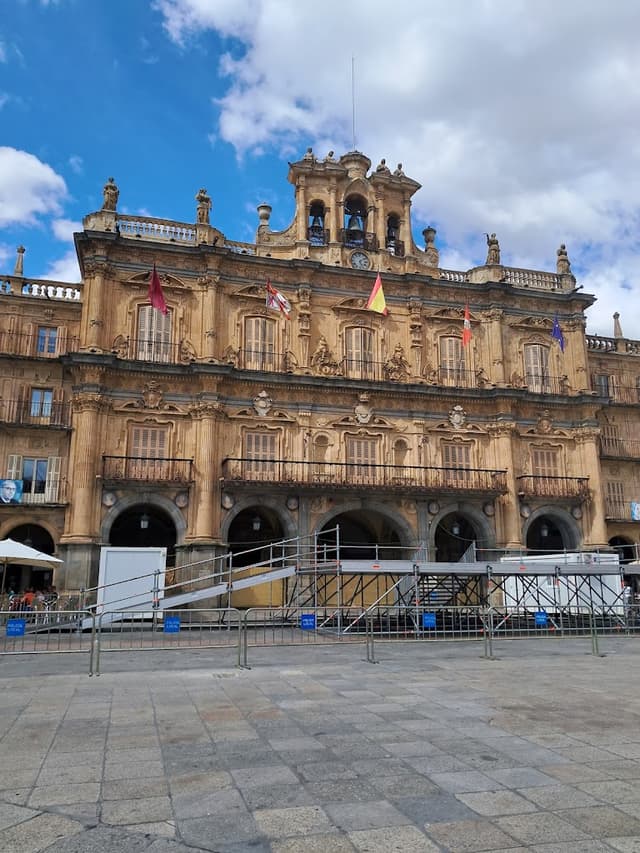
The heart of Salamanca, Plaza Mayor is a magnificent square adorned with Baroque architecture, bustling cafes, and lively street performers. It's a vibrant hub for social gatherings and cultural events, offering a glimpse into the city's rich history and architectural splendour.
● Salamanca Cathedral (Catedral Nueva & Catedral Vieja)
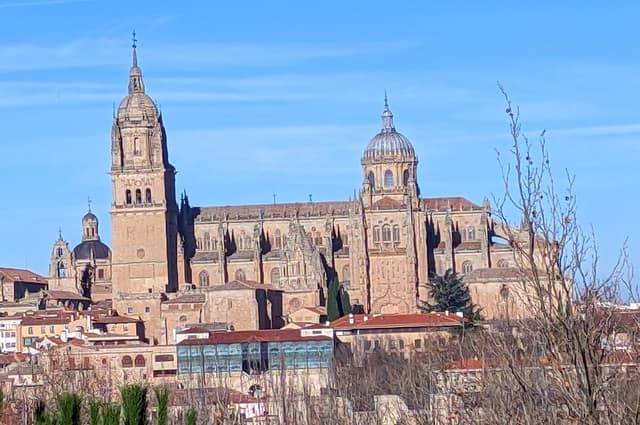
A stunning blend of Gothic and Baroque styles, Salamanca Cathedral is an architectural masterpiece. Explore the intricately carved façades, marvel at the soaring towers, and admire the awe-inspiring interior adorned with exquisite artwork and sculptures.
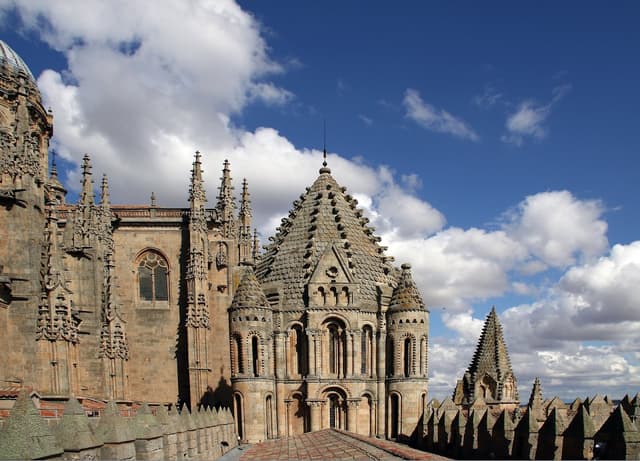
● University of Salamanca
Founded in 1218, the University of Salamanca is one of the oldest in Europe and a UNESCO World Heritage Site. Visit the historic university buildings, including the famous Plateresque façade, and learn about its illustrious past and contributions to academia.
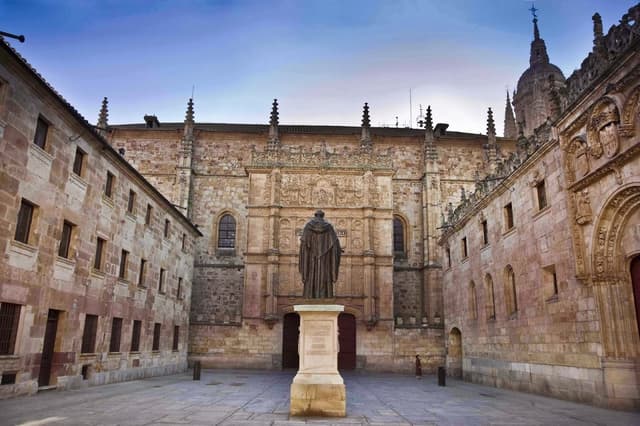
Here, carved among all the intricate details of the façade, is a tiny frog said to bring good luck to all students who find it, promising to only receive good grades.
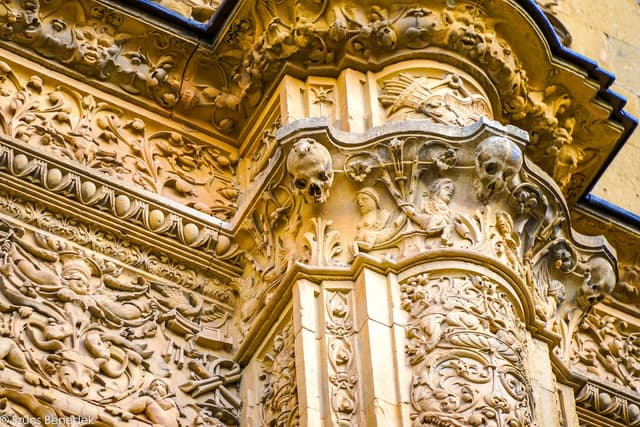
● Casa de las Conchas
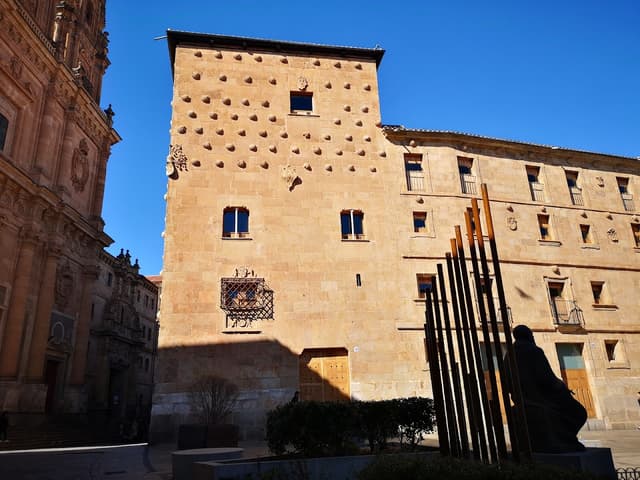
This iconic landmark is adorned with hundreds of scallop shells, symbolizing the Camino de Santiago pilgrimage route. Explore the courtyard and interior adorned with intricate carvings, and don't miss the chance to climb the tower for panoramic views of the city.
● Puente Romano
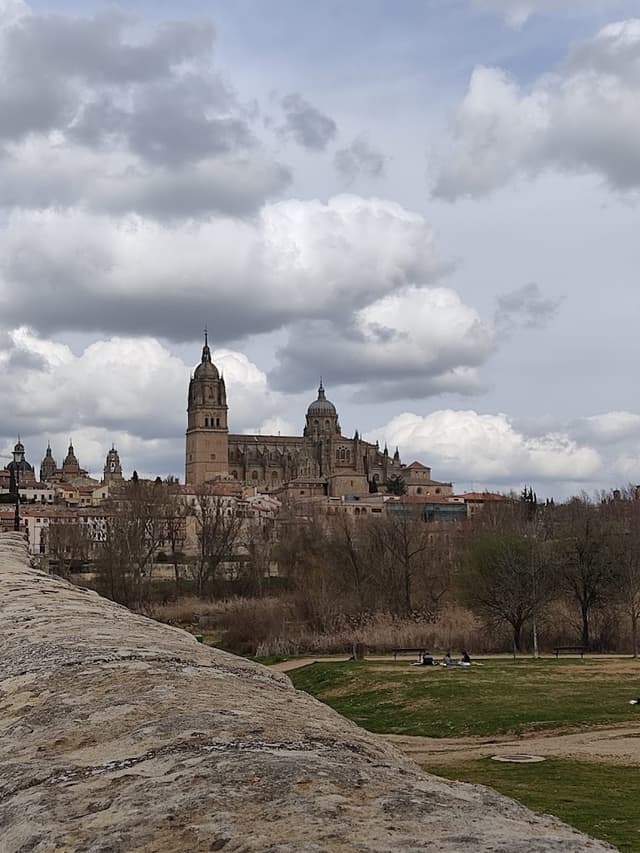
Dating back to the Roman era, Puente Romano is one of Salamanca's oldest bridges. Stroll across this ancient marvel, admire the views of the Tormes River, and imagine the footsteps of generations past as you explore its historic arches.
The Verraco (wild boar) is a fascinating historical monument located near the iconic Roman Bridge (Puente Romano). This ancient sculpture, dating back to the 1st century AD, stands as a testament to the city's rich Roman heritage.
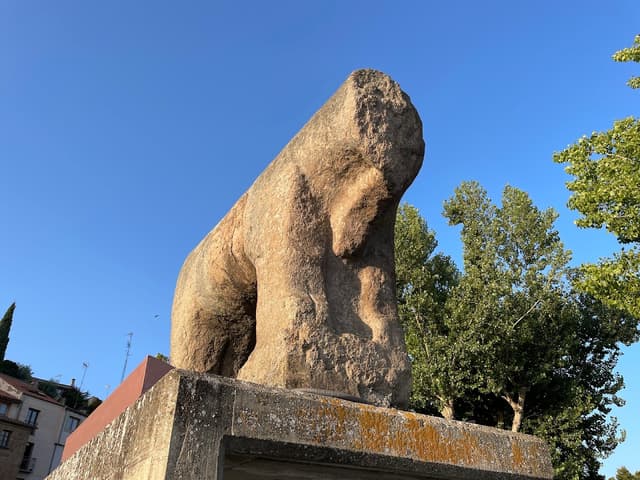
Visitors to Salamanca can admire this remarkable piece of history as they stroll along the picturesque riverbanks, immersing themselves in the city's timeless charm and cultural heritage.
Carved from a single block of stone, the Verraco is a representation of a boar, symbolizing strength and fertility in ancient Celtic and Iberian cultures. Its rugged, weathered appearance and intricate details offer a glimpse into the craftsmanship of the past, while its imposing presence against the backdrop of the Tormes River evokes a sense of awe and intrigue.
There is a legend as well saying that the statue could have either been a verraco or a swine, but since the head was lost it is up for each of us to decide.
● Tormes River
The Tormes River, winding gracefully through the heart of Salamanca, serves as a tranquil oasis amidst the bustling cityscape. Spanning picturesque bridges and flanked by verdant greenery, the river offers a serene escape for locals and visitors alike.
Along its banks, well-maintained tracks beckon strollers to embark on leisurely walks, immersing themselves in the natural beauty and historical charm of the surroundings.
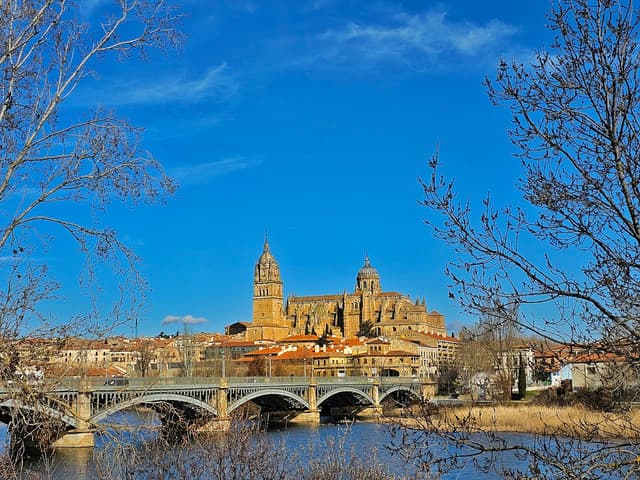
The gentle murmur of the flowing water provides a soothing soundtrack as one meanders along the pathways, taking in panoramic views of the city's iconic landmarks and architectural wonders.
Ample seating areas and shaded alcoves invite picnickers to unwind and savour a leisurely meal amidst nature's embrace, while families and friends gather to bask in the tranquility of the riverside setting. Whether for a morning stroll, an afternoon picnic, or a romantic evening rendezvous, the Tormes River and its scenic tracks offer a sanctuary for relaxation, reflection, and rejuvenation in the heart of Salamanca.
Huerto de Calixto y Melibea
Named after characters from the famous Spanish novel "La Celestina," this tranquil garden offers a peaceful retreat from the bustling city streets. Wander through its lush greenery, admire the panoramic views, and soak in the beauty of Salamanca's natural surroundings.
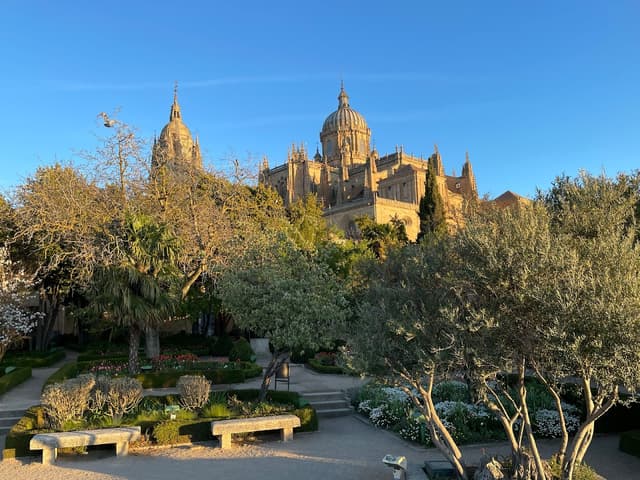
Tip: if possible, on a clear day, leave this till just before sunset to enjoy seeing the city's transition from day to night time, as many of the key buildings in Salamanca are lit at night, walking back to the city centre is also an experience itself.
La Clerecía (Clerecia Church and Royal College of the Holy Spirit)
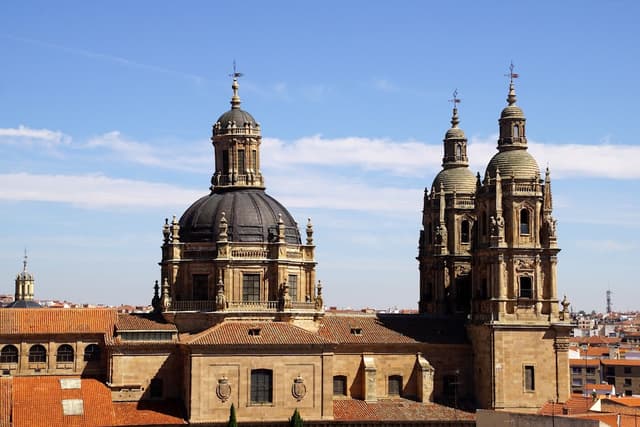
This Baroque masterpiece boasts a stunning façade and a majestic interior adorned with intricate carvings and gilded altarpieces. Climb the bell tower for panoramic views of Salamanca's skyline and the surrounding countryside.
Casa Lis Art Nouveau and Art Deco Museum
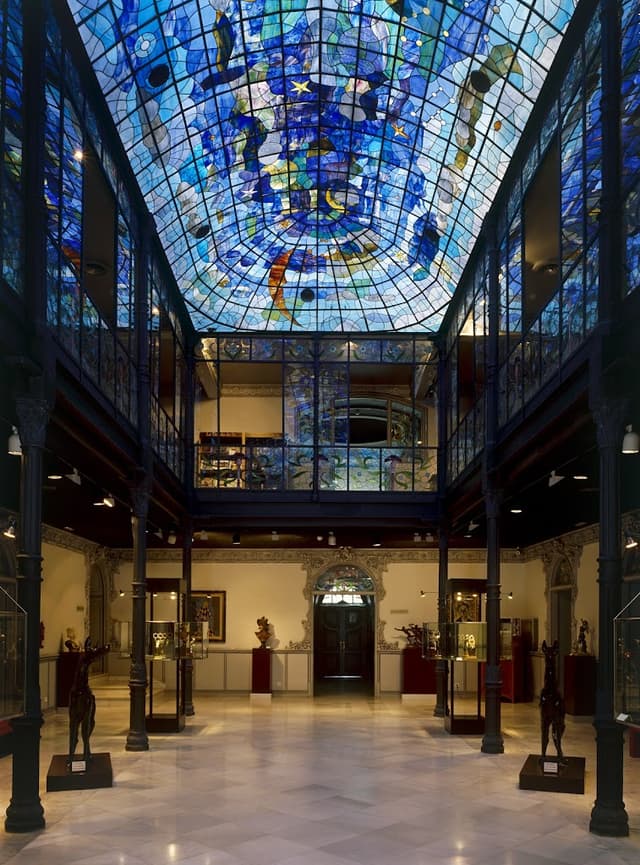
Housed in a stunning Modernist building, this museum showcases a remarkable collection of Art Nouveau and Art Deco artefacts, including glassware, ceramics, and sculptures. Explore the elegant galleries and immerse yourself in the beauty of these iconic art movements.
El Cielo de Salamanca
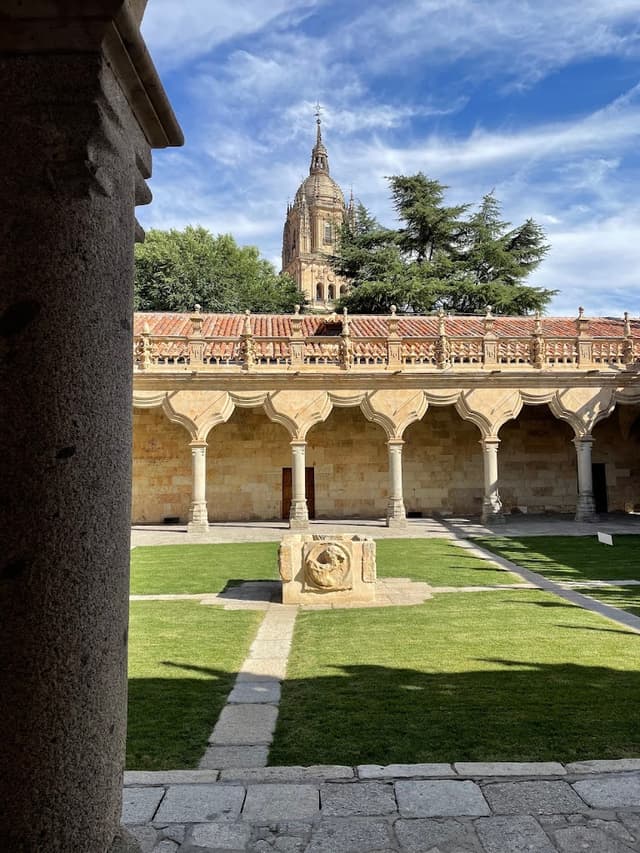
Torre del Clavero (Clavero Tower)

This medieval tower offers panoramic views of Salamanca's skyline and surrounding countryside. Climb to the top for breathtaking vistas and a unique perspective on the city's architectural treasures.
Convento de San Esteban (San Esteban Convent)

A masterpiece of Spanish Renaissance architecture, the Convent of San Esteban is renowned for its stunning cloisters, ornate chapels, and magnificent façade. Take a guided tour to uncover its rich history and marvel at its serene beauty.
Nearby Cities to Add to Your Tour
Exploring these nearby towns and cities allows visitors to experience the diverse cultural and architectural heritage of the region surrounding Salamanca, making for an enriching and memorable travel experience.
Ávila
Known for its well-preserved medieval walls and historic old town, Ávila is just over an hour's drive from Salamanca. Don't miss the stunning Cathedral of Ávila and the Convent of Saint Teresa.
Segovia
Famous for its ancient Roman aqueduct and fairytale-like Alcázar castle, Segovia is approximately a two-hour drive from Salamanca. Wander through the charming streets of its UNESCO-listed old town and indulge in the city's traditional cuisine, including the iconic Segovian roast suckling pig.
Zamora
Located about an hour and a half from Salamanca, Zamora is renowned for its Romanesque architecture, including numerous churches and historic buildings. Take a stroll along the Duero River and explore the city's rich cultural heritage.
Ciudad Rodrigo
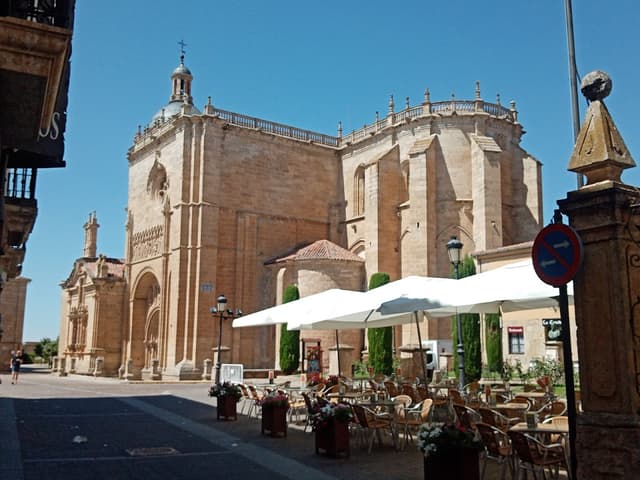
Situated close to the Portuguese border, Ciudad Rodrigo is a picturesque town known for its well-preserved medieval walls, historic squares, and charming cobblestone streets. It's approximately an hour's drive from Salamanca and offers a glimpse into Spain's past.
La Alberca
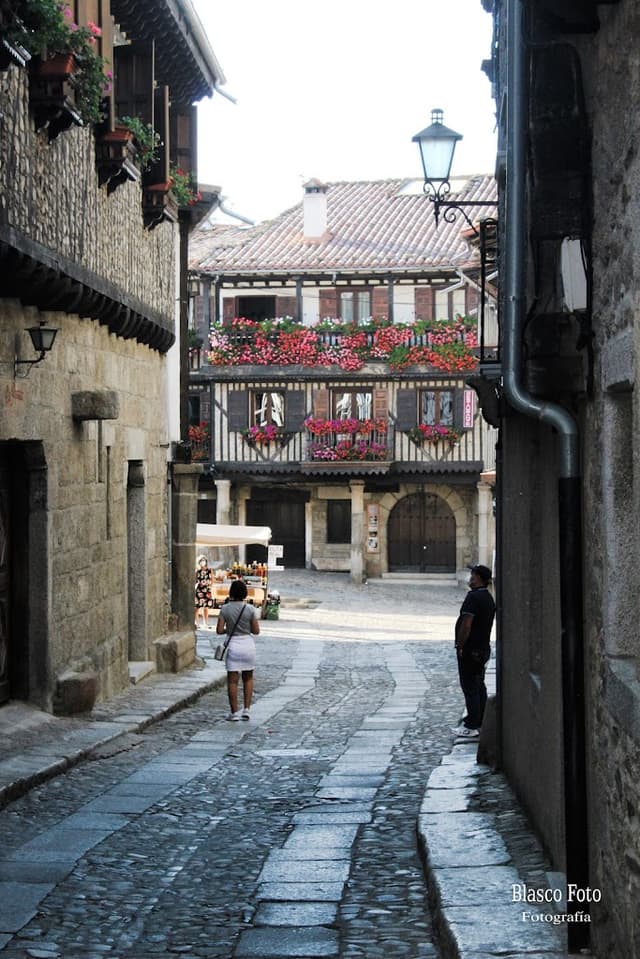
Steeped in history and tradition, this quaint pueblo captivates visitors with its timeless allure and rustic beauty. Cobblestone streets wind their way through the heart of the village, flanked by centuries-old stone houses adorned with colorful flowers cascading from wrought-iron balconies. La Alberca's rich cultural heritage is palpable at every turn, from its well-preserved medieval architecture to its ancient traditions and customs that have been passed down through generations.
Porto -Portugal
Cross the border into Portugal and visit the vibrant city of Porto, known for its stunning riverside views, historic wine cellars, and ornate churches. Just a few hours' drive from Salamanca, Porto is a must-visit destination for wine enthusiasts and history lovers alike.
Dining
Introduction to Spanish cuisine
Spanish cuisine is an enticing blend of flavors, shaped by centuries of cultural exchange and regional diversity. From the coastal delights of seafood paella to the hearty stews of the interior, Spain's culinary landscape is as varied as its geography. Key ingredients such as olive oil, garlic, tomatoes, and an array of spices infuse dishes with rich, robust flavours, while a commitment to fresh, seasonal produce ensures quality and authenticity. Dining in Spain is not just about nourishment; it's a vibrant sensory journey through tradition, innovation, and a profound passion for food and conviviality.
Must try dishes in Salamanca
● Jamon Ibérico:
Salamanca is known nationwide for its finest quality of salted pork. Sample the finest cured ham from acorn-fed Iberian pigs, prized for its melt-in-your-mouth texture and savoury flavour.
Other salted pork cold cuts are chorizo, fuet, salchichón and lomo. If you don't eat pork, there are turkey-made versions of these that you can find in main supermarkets in Spain, like in "Mercadona".
Want to try them all at once? Then this next dish is for you:
● Hornazo: A traditional pastry filled with a delicious mixture of pork loin, chorizo, and hard-boiled eggs, typically enjoyed during Easter festivities. You can find it in bakeries across Salamanca or some supermarkets.
Tapas typical of Salamanca
● Patatas meneás: A local speciality consisting of diced potatoes sautéed with garlic, paprika, and olive oil, often served with fried eggs and cured meats like fried chorizo or torreznos.
● Torreznos: Essentially thick strips of pork belly, typically seasoned with salt and sometimes with spices like paprika, before being deep-fried until crispy. The result is a crunchy exterior with a tender, flavorful centre, often served as a tapa or appetizer.
● Farinato: A rustic sausage made from pork, bread crumbs, and spices, with a unique flavour that reflects Salamanca's culinary heritage.
Well-known tapas around Spain
● Tortilla de patatas: A classic Spanish omelette made with eggs, potatoes, and onions, cooked until golden and served in slices.
● Croquetas: Deep-fried croquettes made with a creamy béchamel sauce mixed with various fillings such as ham, chicken, or seafood, coated in breadcrumbs.
● Pulpo a la gallega: Galician-style octopus, boiled until tender, then sliced and seasoned with paprika, olive oil, and sea salt, served on a wooden platter.
● Patatas bravas: Cubes of fried potatoes served with a spicy tomato-based sauce (brava sauce) and sometimes topped with aioli or mayonnaise.
● Ensalada rusa: This classic dish features a medley of boiled potatoes, carrots, peas, and sometimes green beans, mixed with hard-boiled eggs and mayonnaise. The vegetables are typically diced into bite-sized pieces and combined with creamy mayonnaise dressing, creating a rich and satisfying dish.
● Pan con tomate: Toasted bread rubbed with ripe tomatoes and garlic, drizzled with olive oil, and seasoned with salt, a simple yet flavorful tapa.
● Pinchos morunos: Moorish-style skewers of marinated pork or chicken, seasoned with spices such as cumin, paprika, and garlic, grilled to perfection and served on toothpicks.
● Gambas al ajillo: Garlic shrimp, sautéed in olive oil with garlic, chili flakes, and sometimes white wine, served sizzling in a small clay dish.
These are all commonly enjoyed with a cold beer or glass of wine, making for a delightful tapas or accompaniment to a meal. In Salamanca you'll often find torreznos and other tapas (small) or raciones (rations, bigger sized tapas) served in bars, taverns, and traditional restaurants, offering a taste of the region's culinary heritage.
Restaurants & Cafés
Budget-friendly
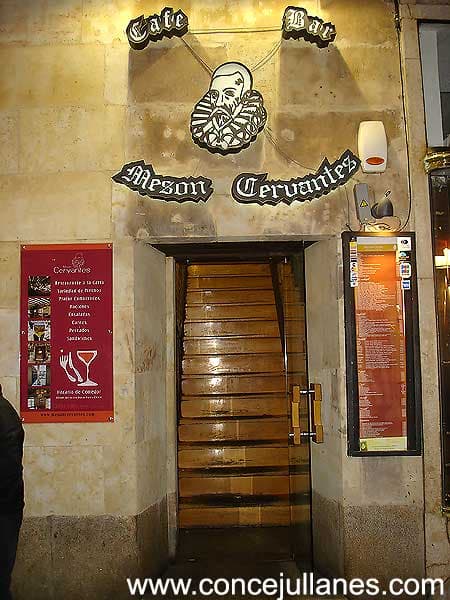
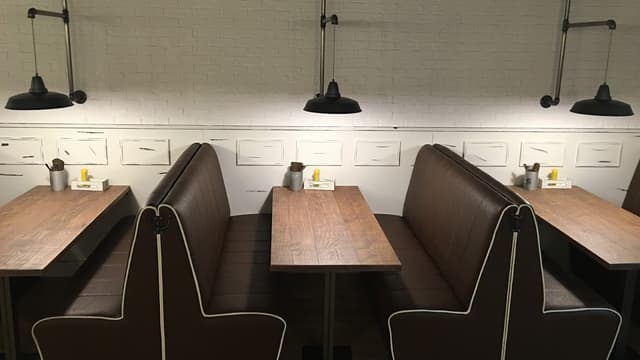
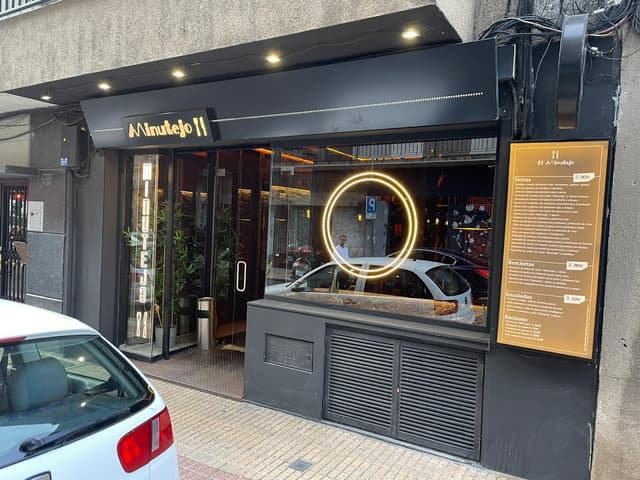
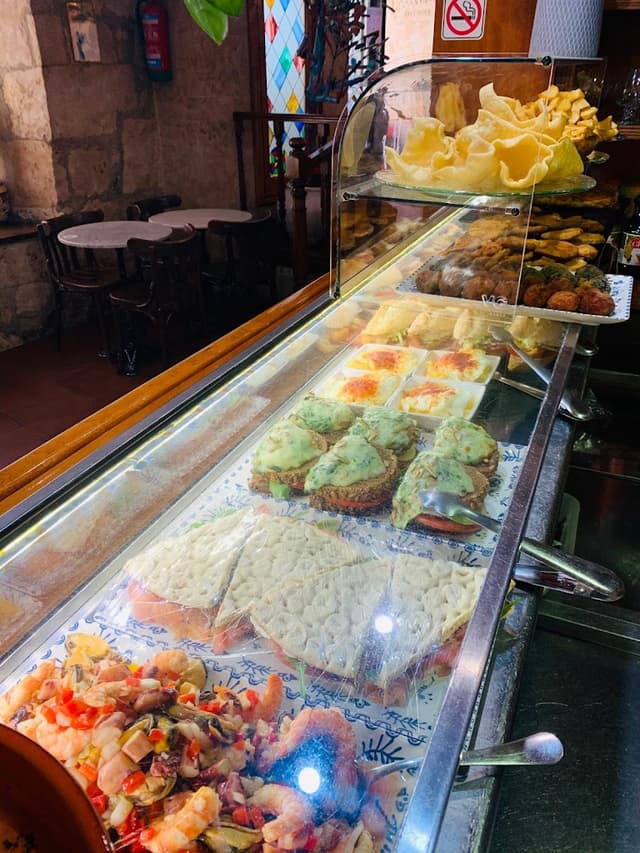
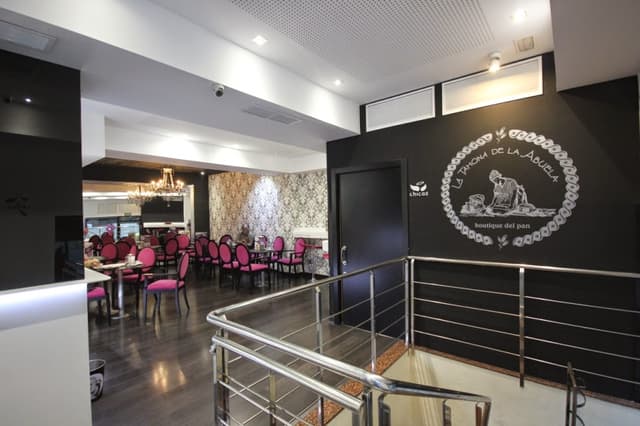
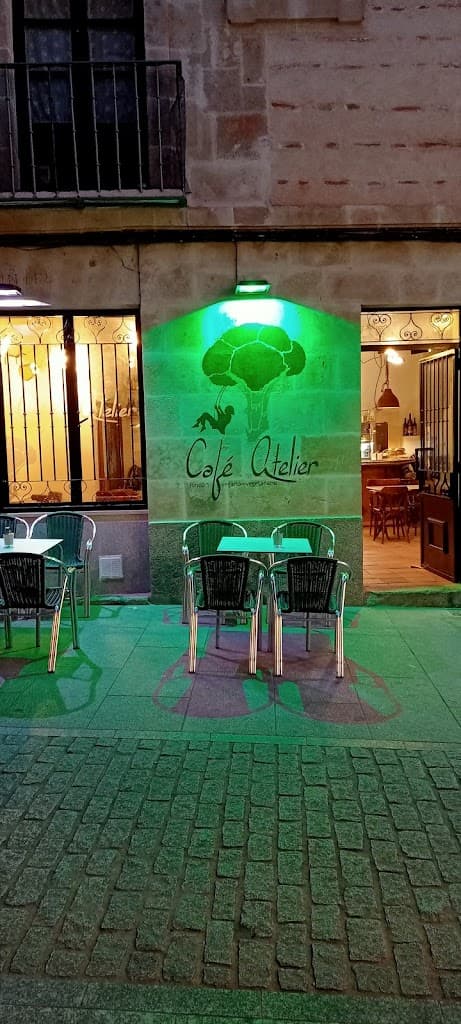
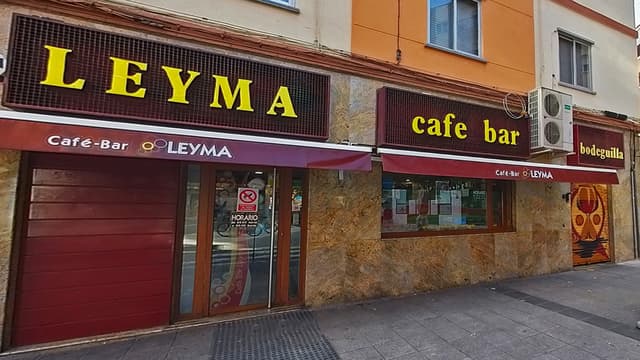
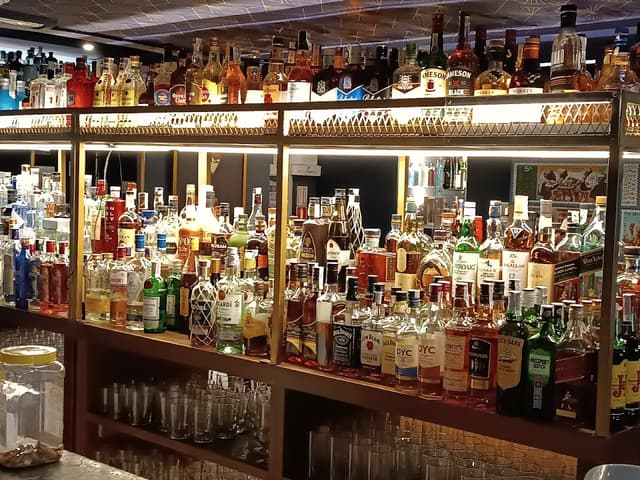
Moderate budget
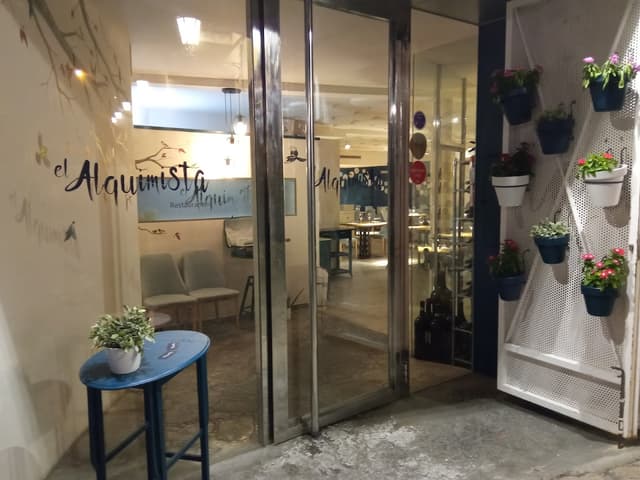
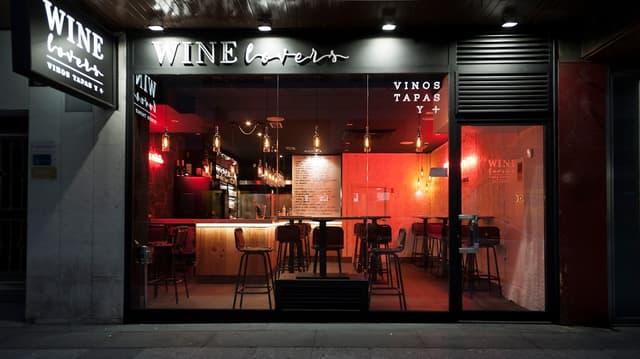
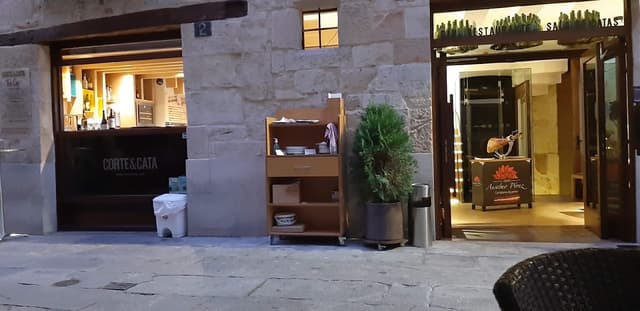
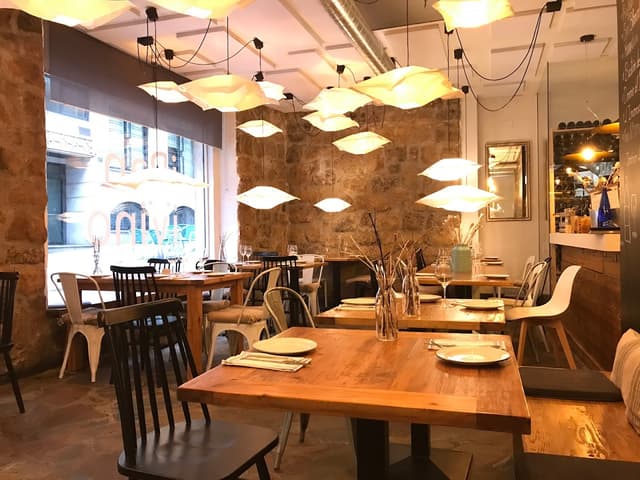
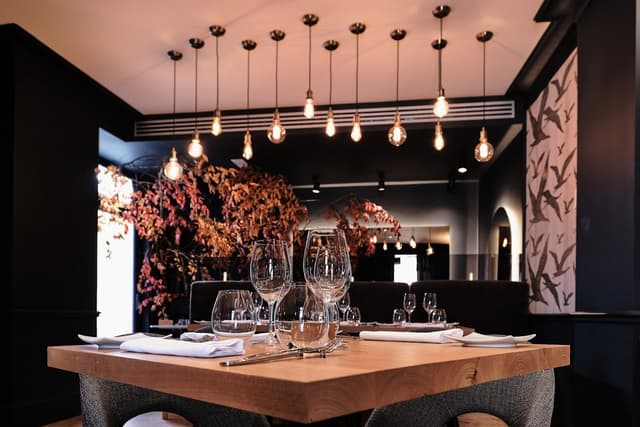
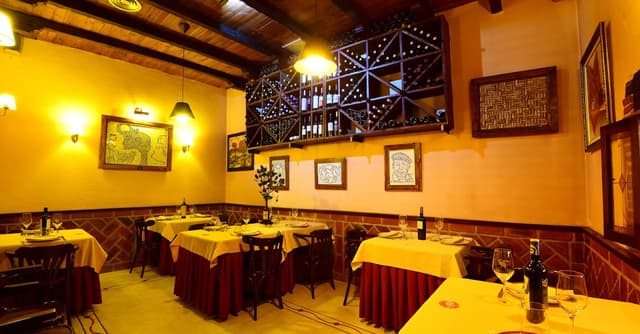
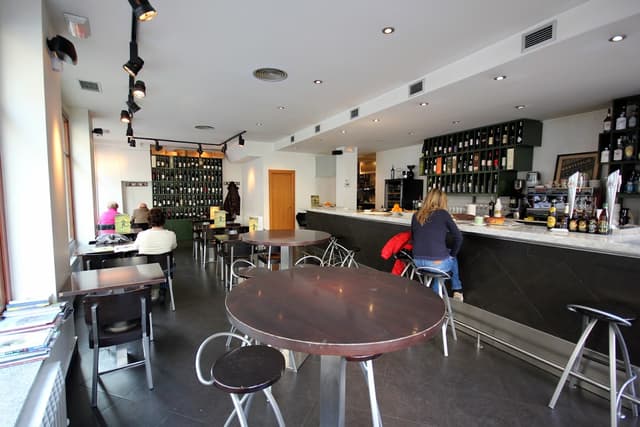
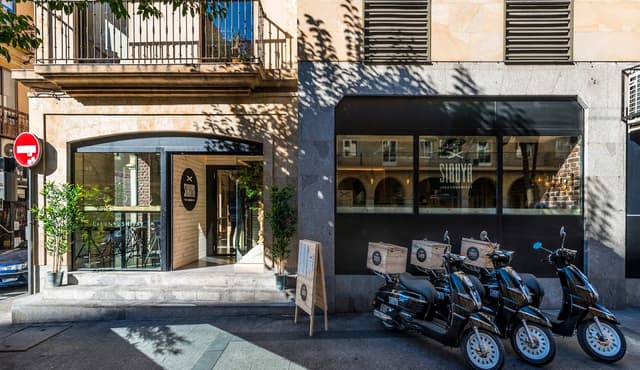
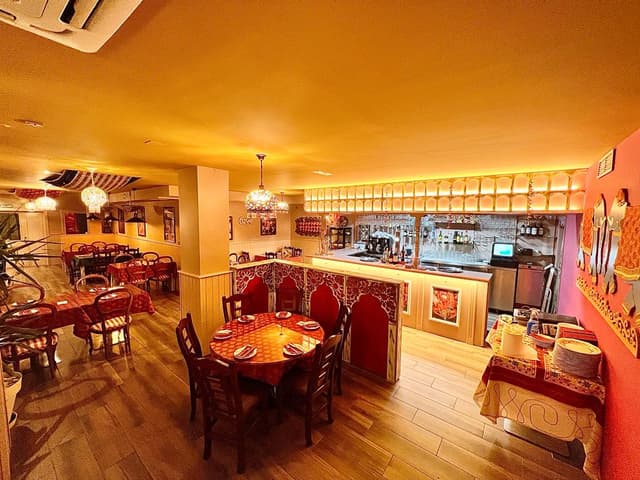
Upscale
To ensure a great dining experience at these upscale and Michelin-starred restaurants, it's essential to make reservations in advance, particularly for larger groups, and to verify their opening hours.

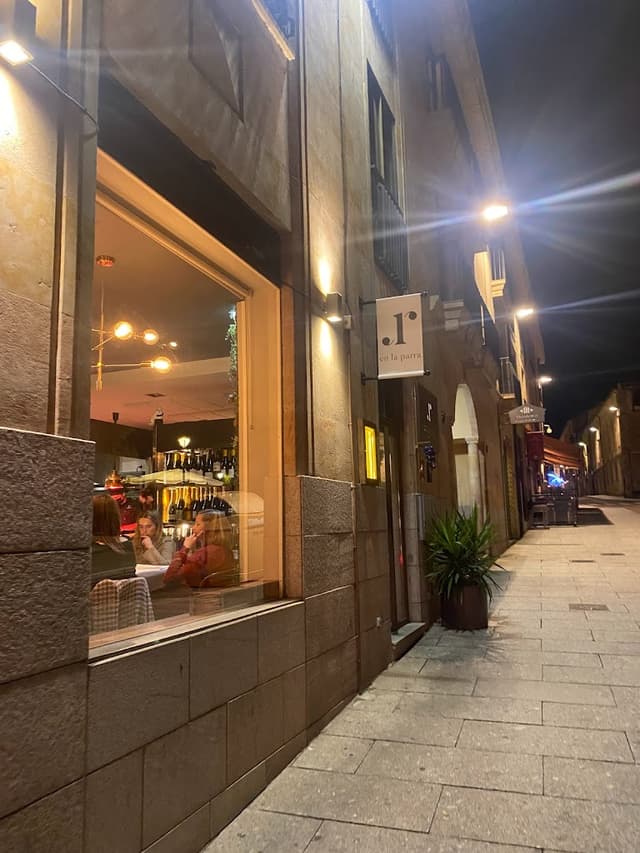
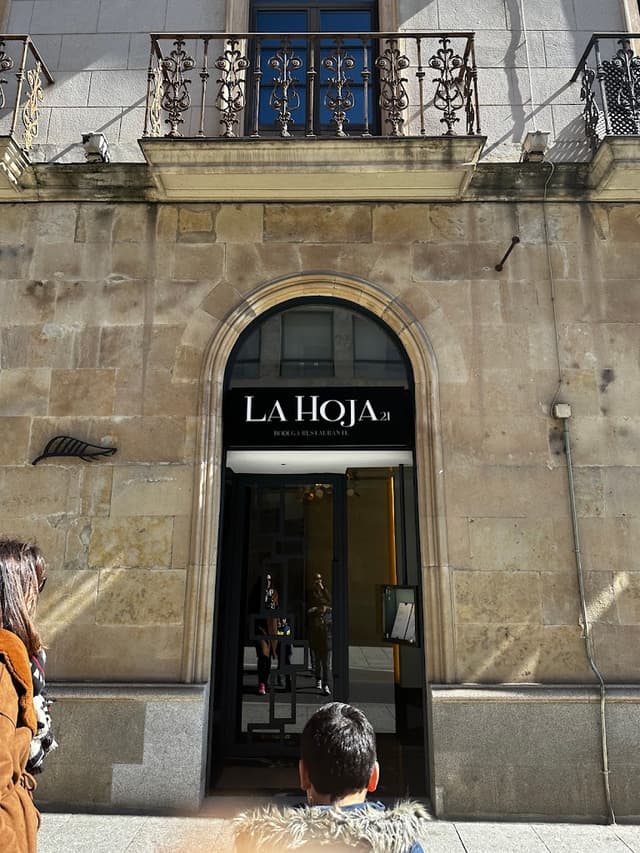
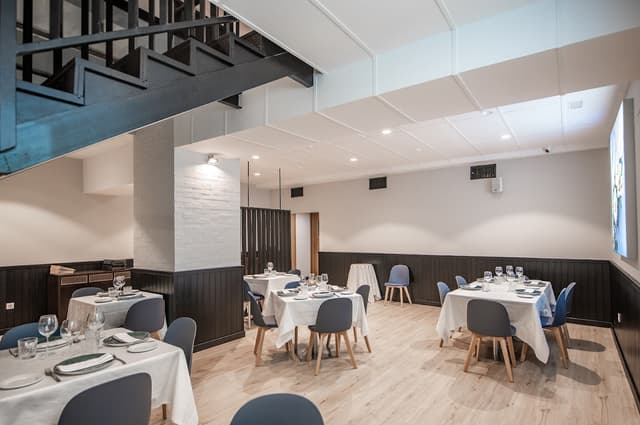
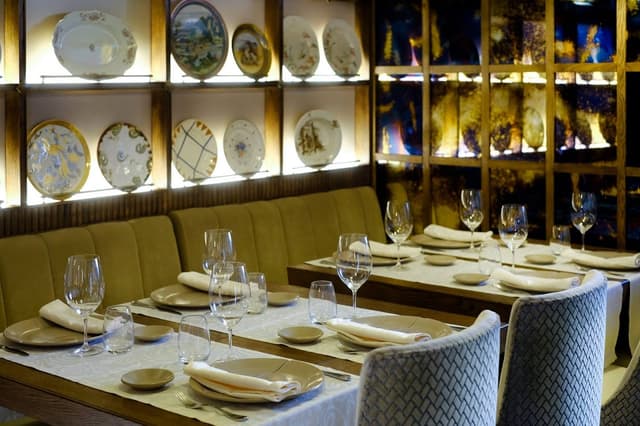
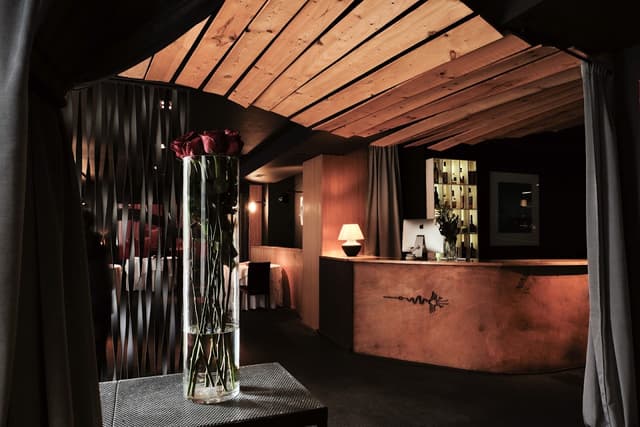
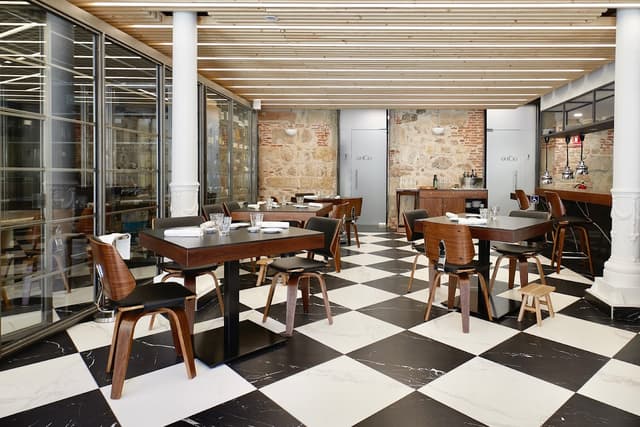
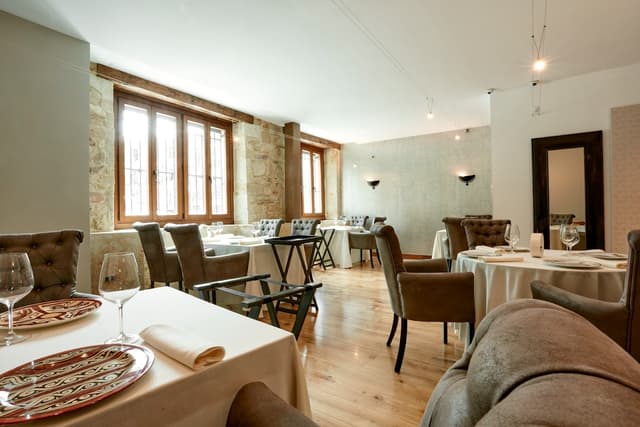
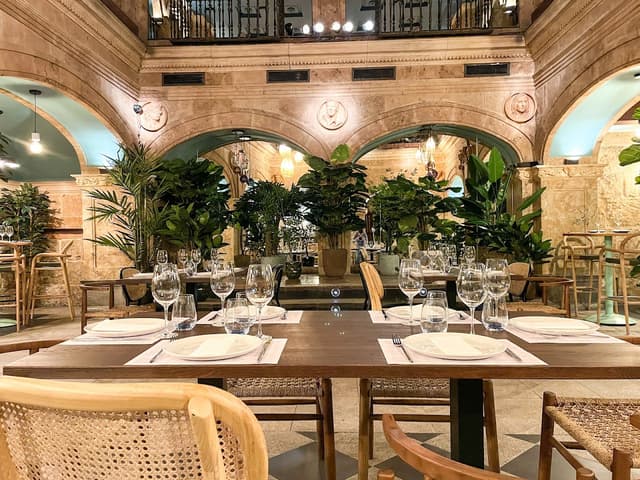
Accommodation
Places with a view & Boutique Hotels
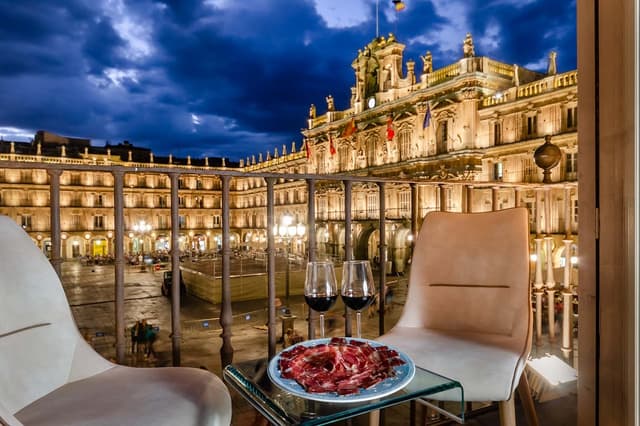
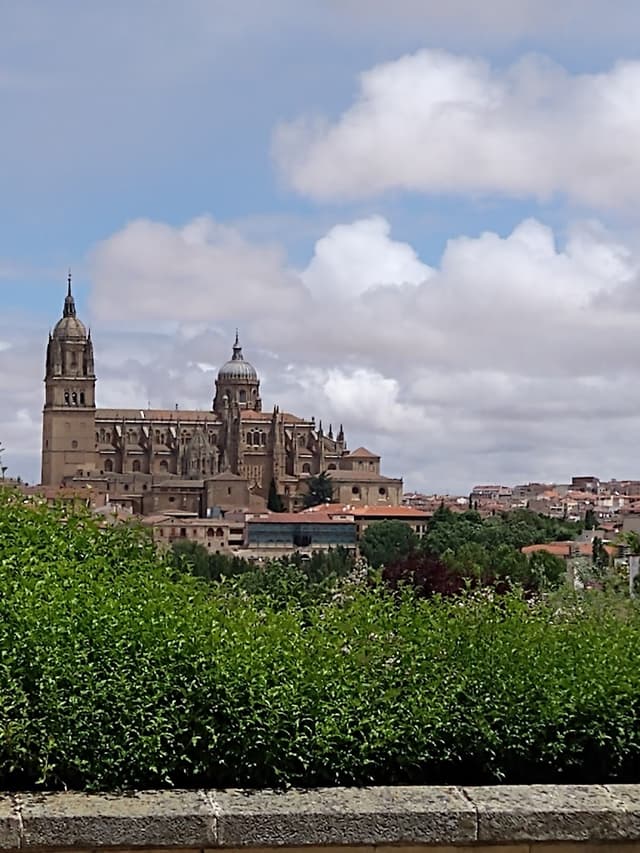
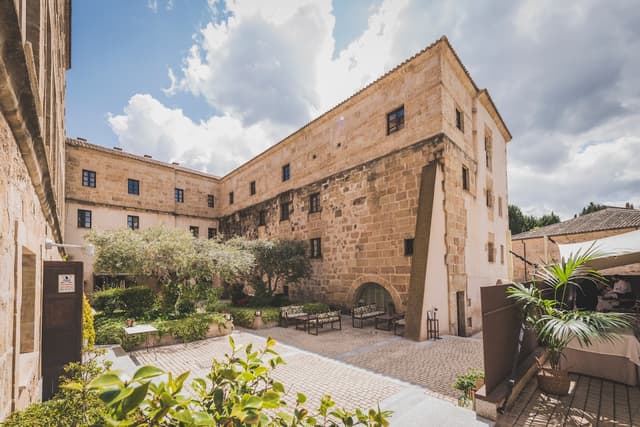
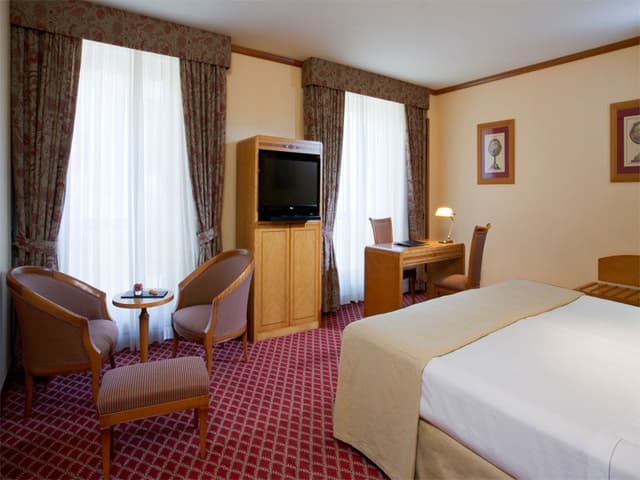
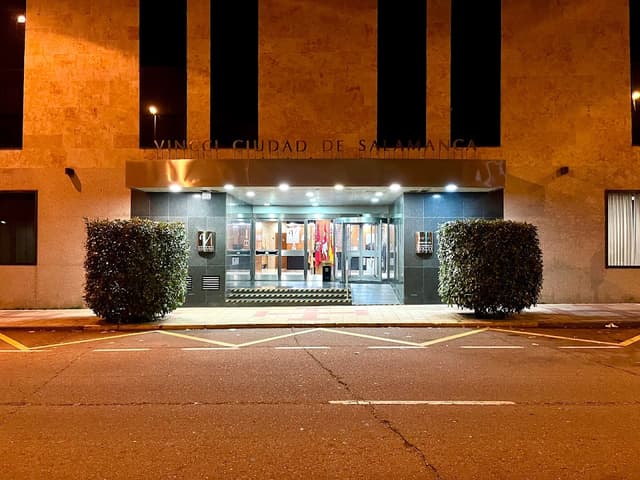
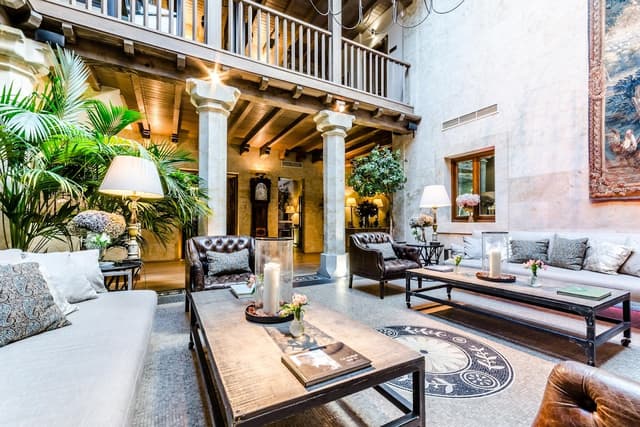
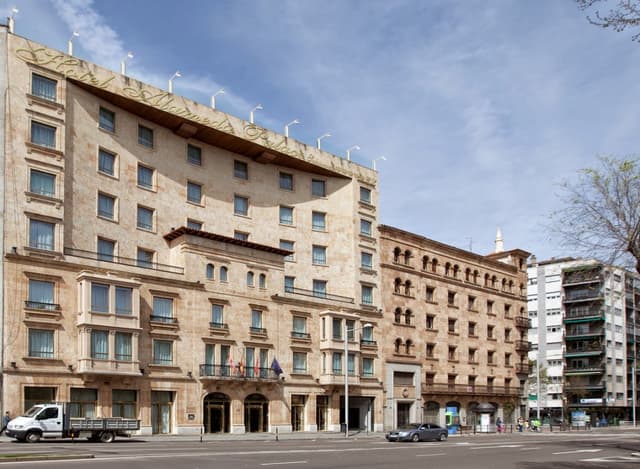
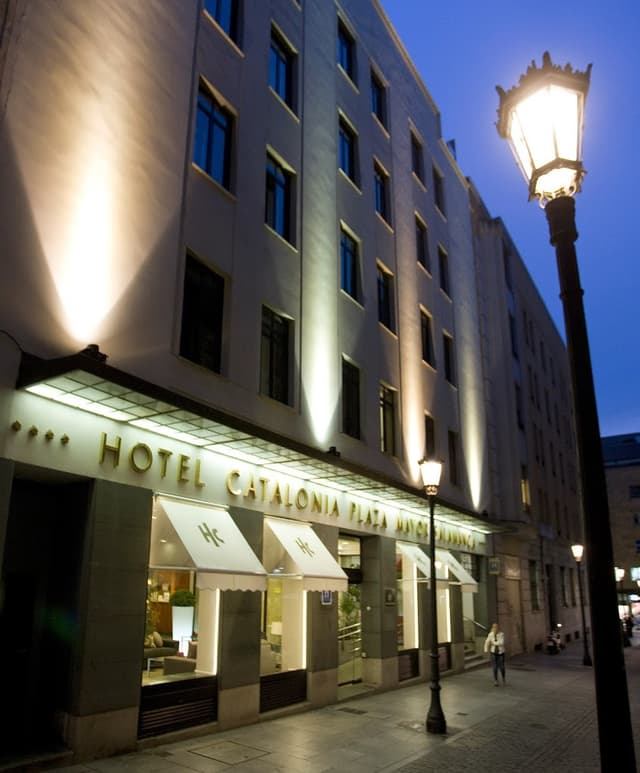
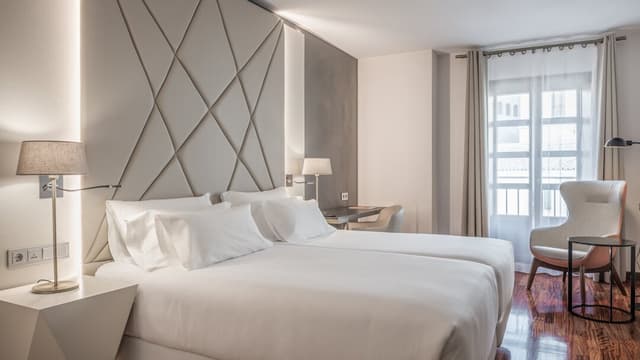
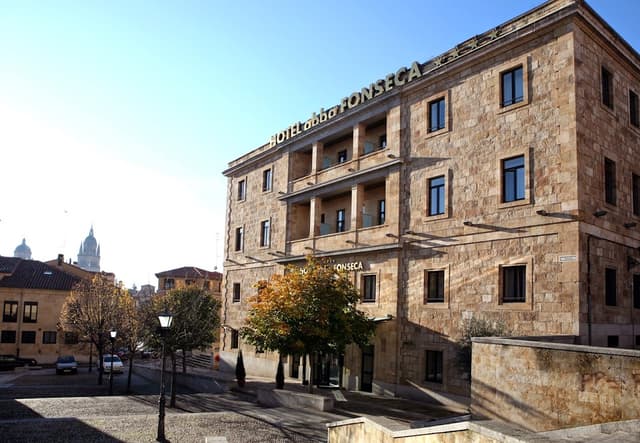
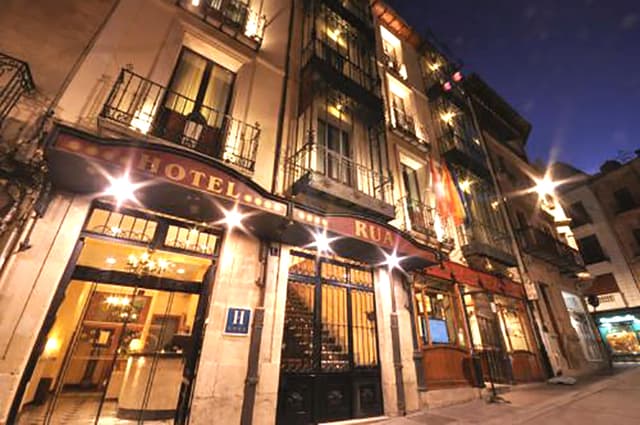
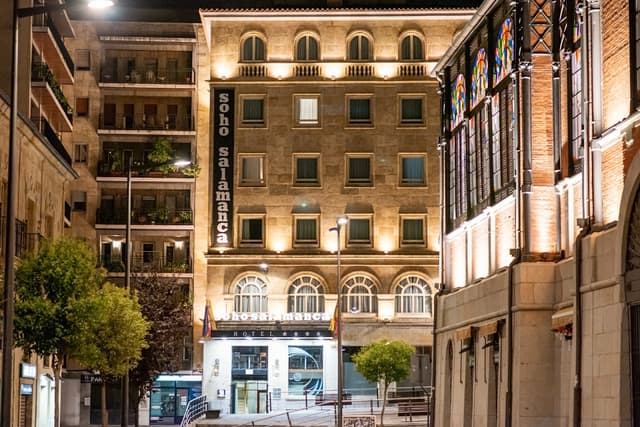
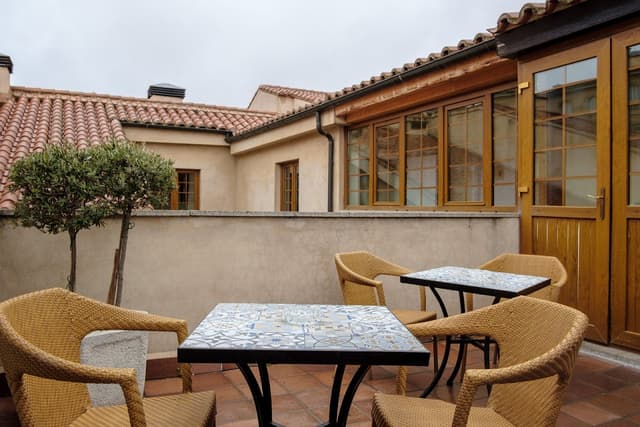
Studios & Apartments
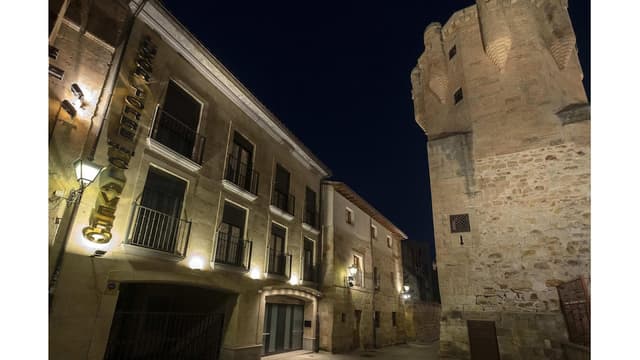
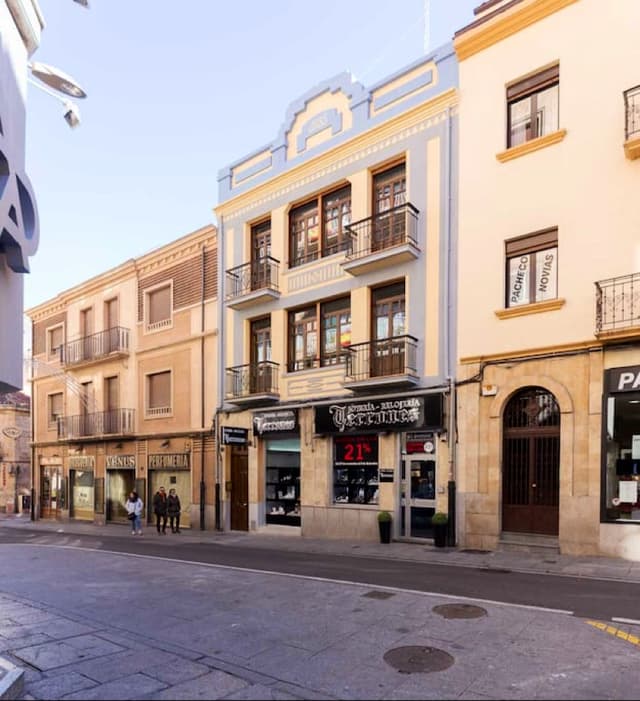
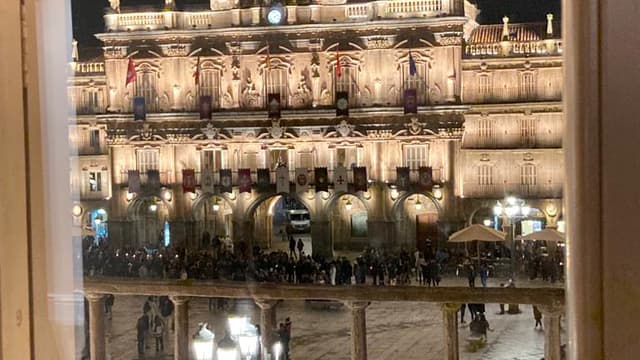
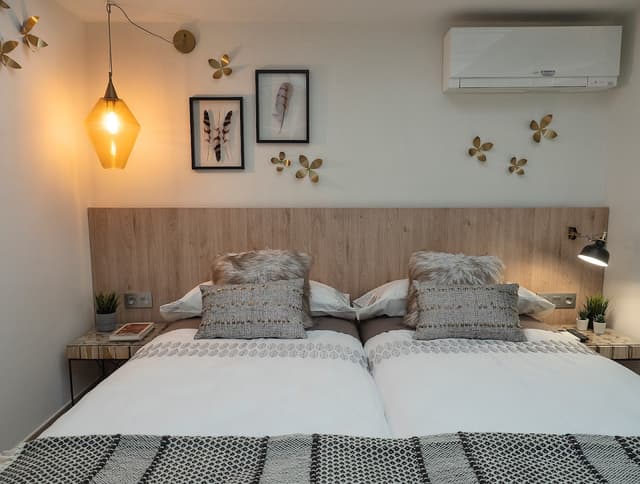
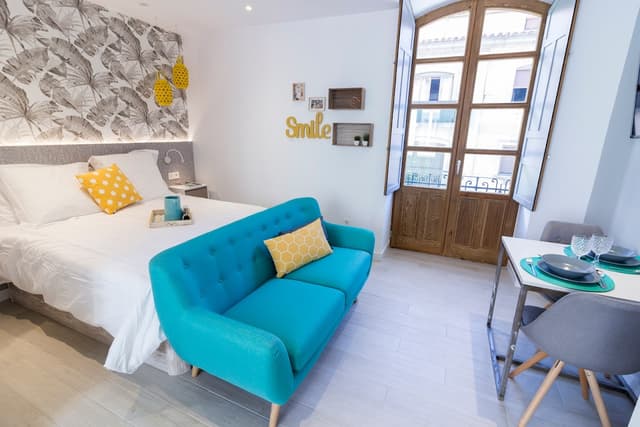
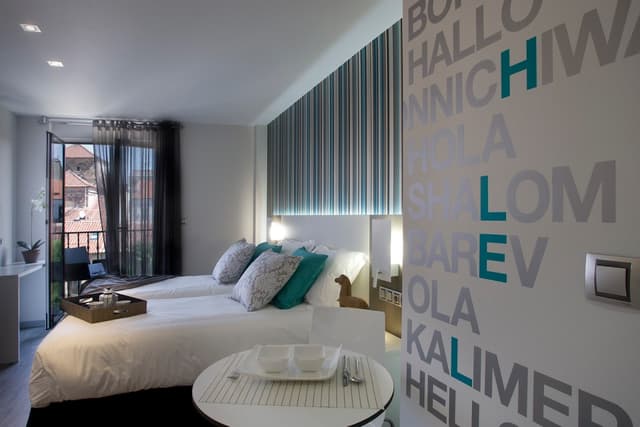
Shopping
Shopping in Salamanca offers a delightful blend of traditional markets, boutique stores, and modern shopping centres, catering to a variety of tastes and preferences. For souvenir shopping, visitors can explore the charming streets of the Old Town, where artisanal shops and craft markets abound. Here, you'll find an array of handmade ceramics, leather goods, and embroidered textiles, perfect for capturing the essence of Salamanca's rich cultural heritage. Additionally, Plaza Mayor hosts regular markets selling local delicacies such as jamón ibérico, cheese, and wine, ideal for stocking up on gourmet treats to take home.
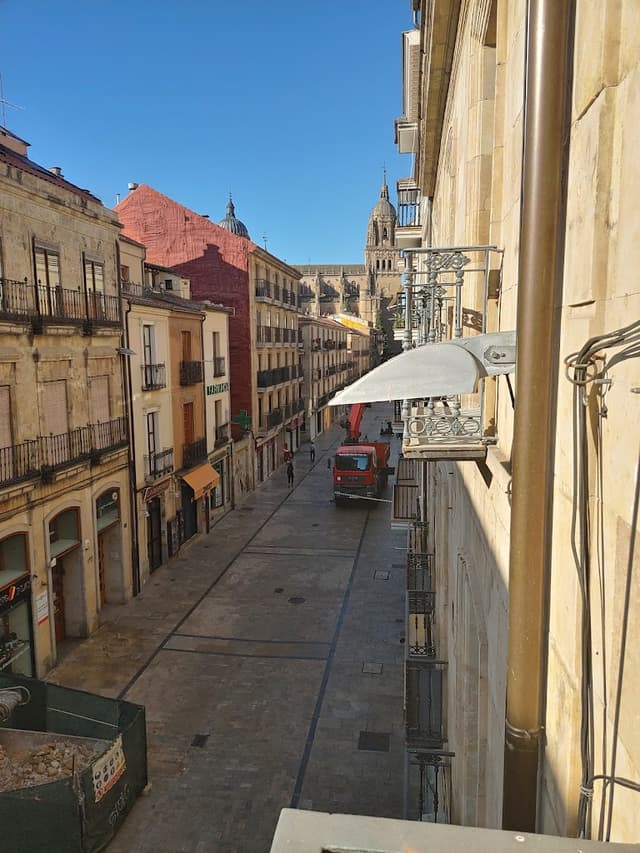
For those seeking retail therapy, Salamanca boasts a vibrant fashion scene with a mix of international brands and local boutiques. Calle Toro and Gran Vía are popular shopping streets lined with fashion stores, shoe shops, and accessory boutiques, offering everything from high-end designer labels to trendy streetwear. Visitors can browse the latest fashion trends or hunt for unique pieces to add to their wardrobe while soaking in the lively atmosphere of Salamanca's bustling shopping districts.
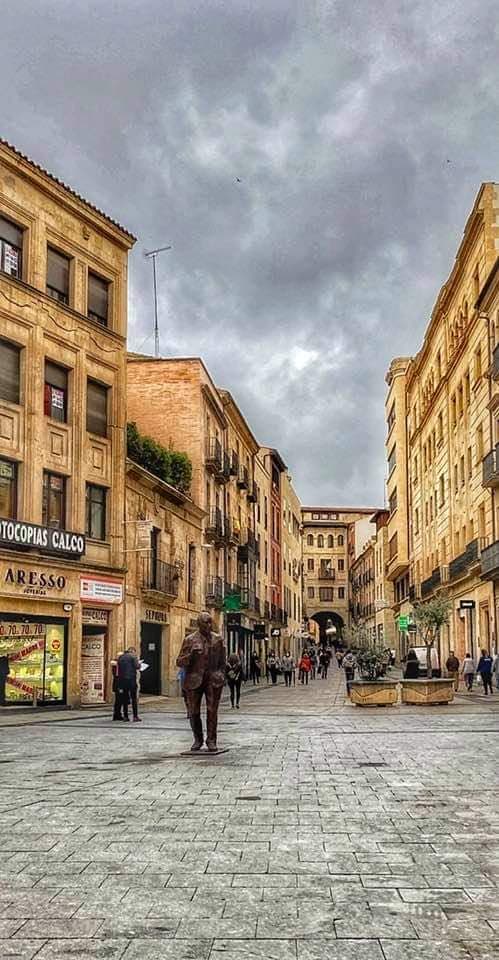
There are also some main shopping centres and malls where you can just get your shopping done within one go, like El Tormes Mall or El Corte Inglés.
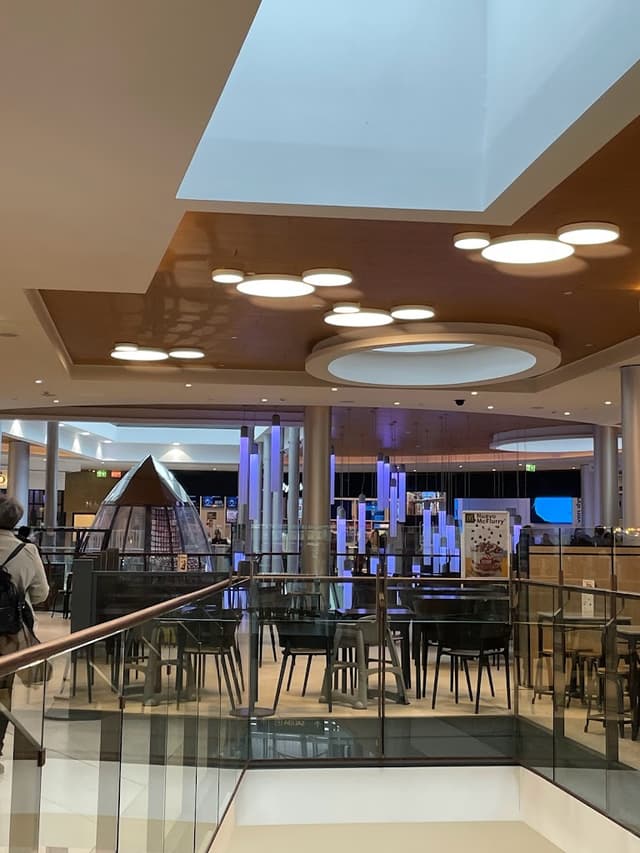
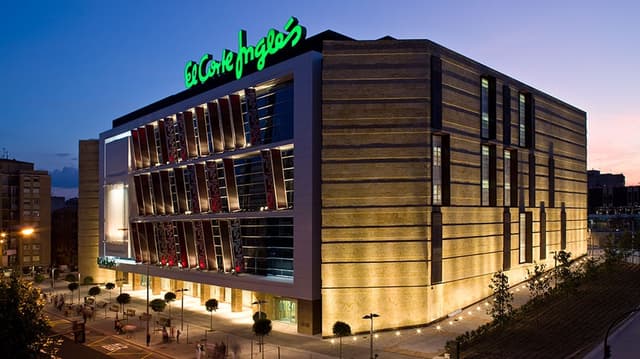
When it comes to grocery shopping, Salamanca offers a diverse selection of supermarkets and speciality stores catering to every culinary need. Mercado Central, located near Plaza Mayor, is a bustling market where locals and tourists alike flock to purchase fresh produce, meats, cheeses, and other gourmet delights. For a more modern shopping experience, El Corte Inglés and Hipercor are department stores offering a wide range of groceries, household goods, and other essentials in a convenient one-stop-shop setting.
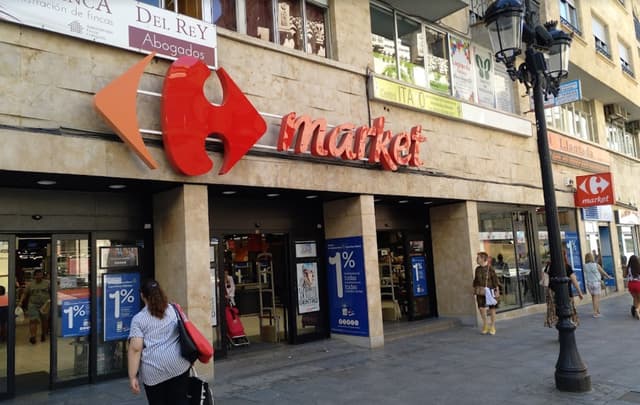
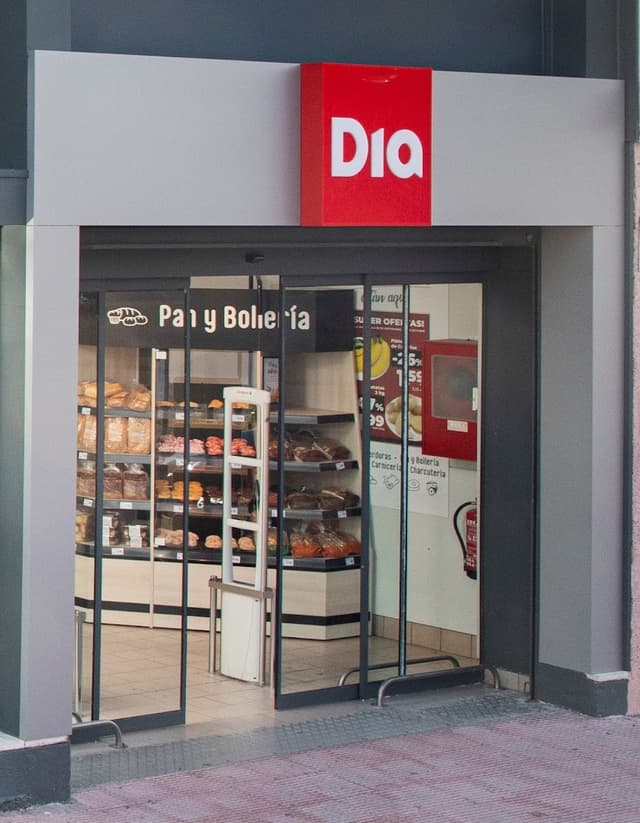
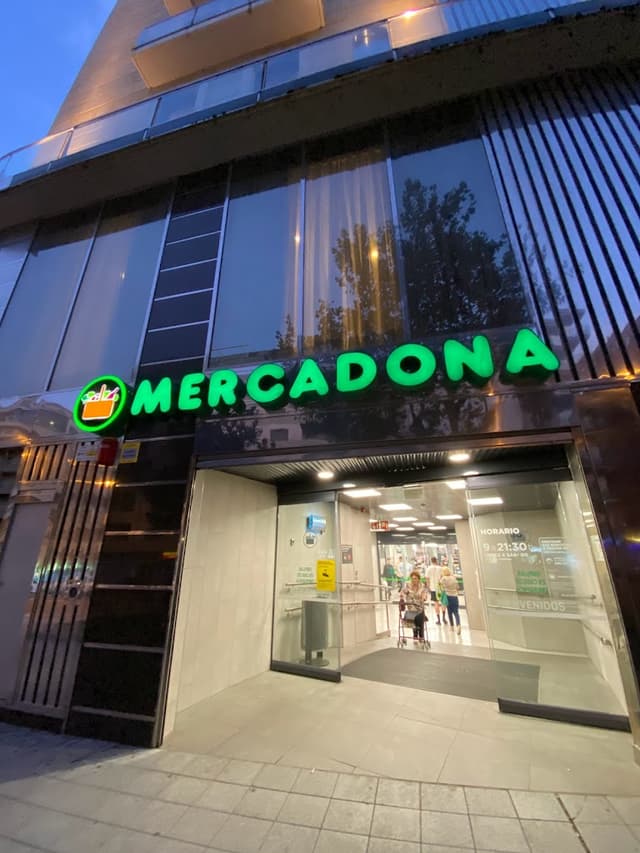
Whether you're searching for souvenirs, updating your wardrobe, or stocking up on groceries, Salamanca offers a vibrant shopping scene that promises something for everyone. So, grab your bags and get ready to indulge in a memorable shopping experience amidst the historic streets and lively markets of this enchanting Spanish city.
Nightlife
These bars and clubs offer a diverse range of experiences, from cozy tapas bars to lively nightclubs, ensuring there's something for everyone to enjoy in Salamanca's vibrant nightlife scene.
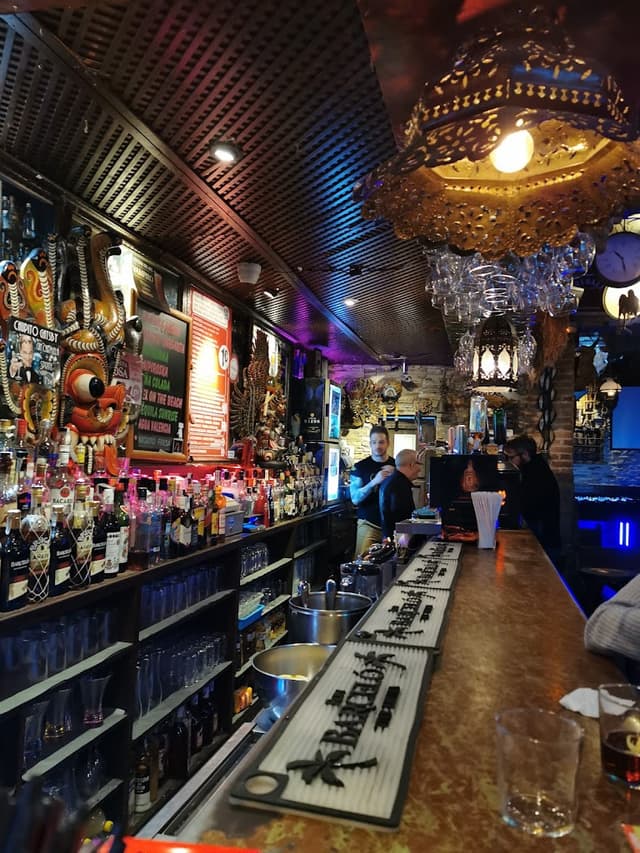
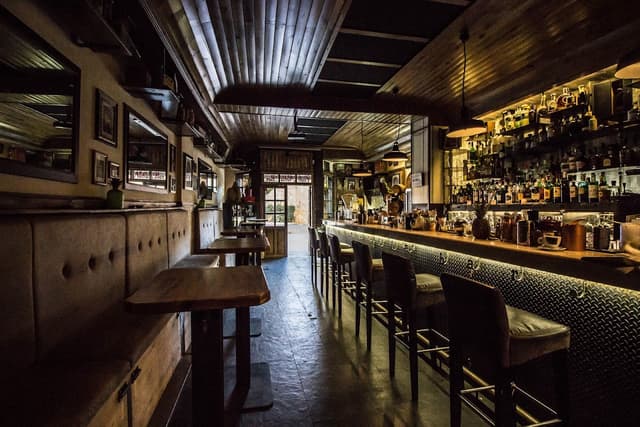

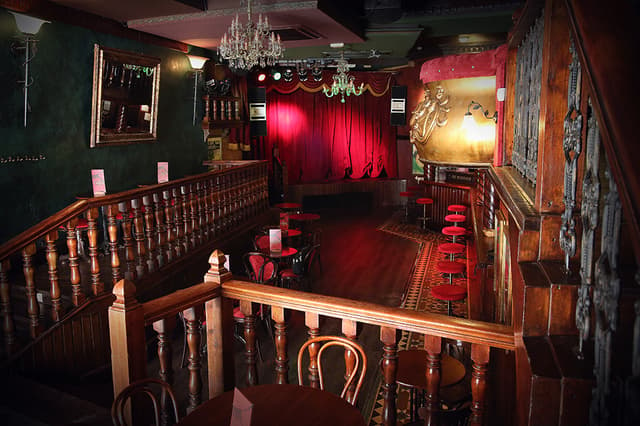
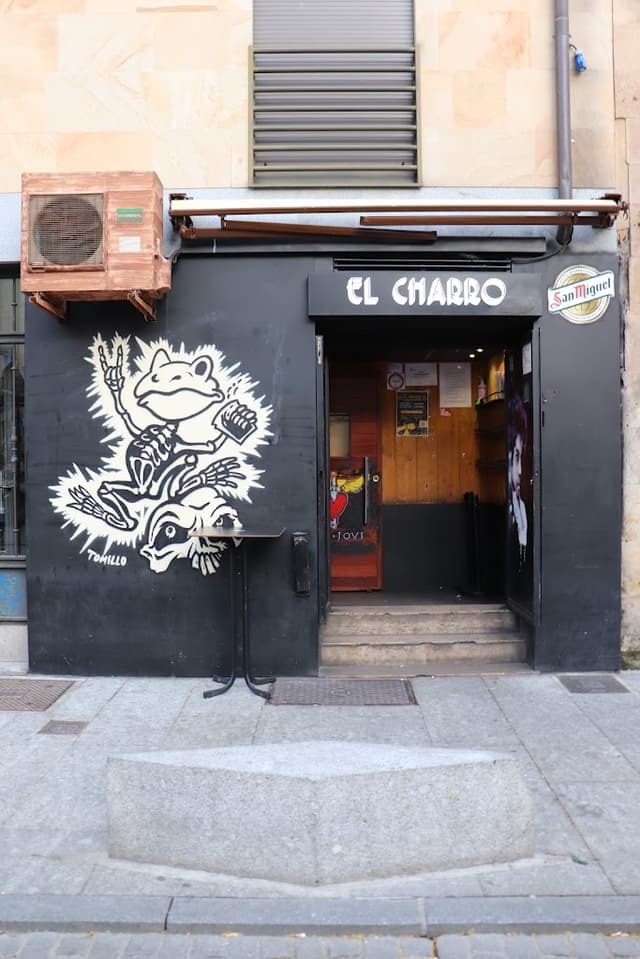
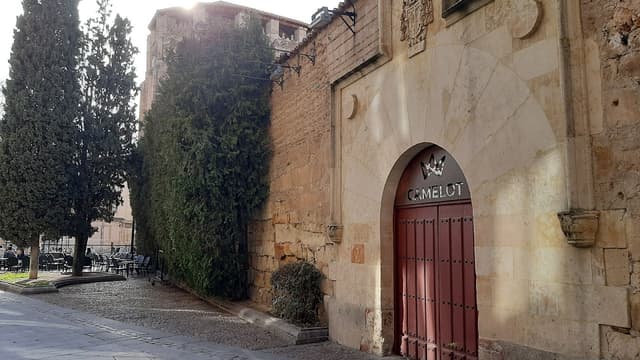
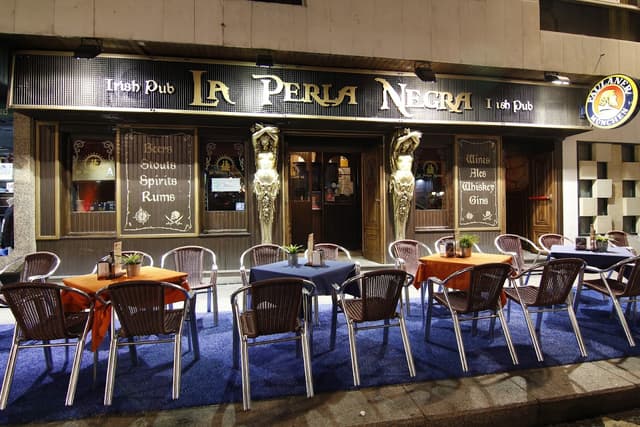
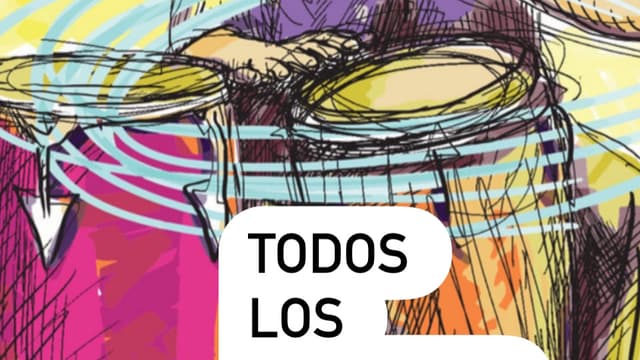
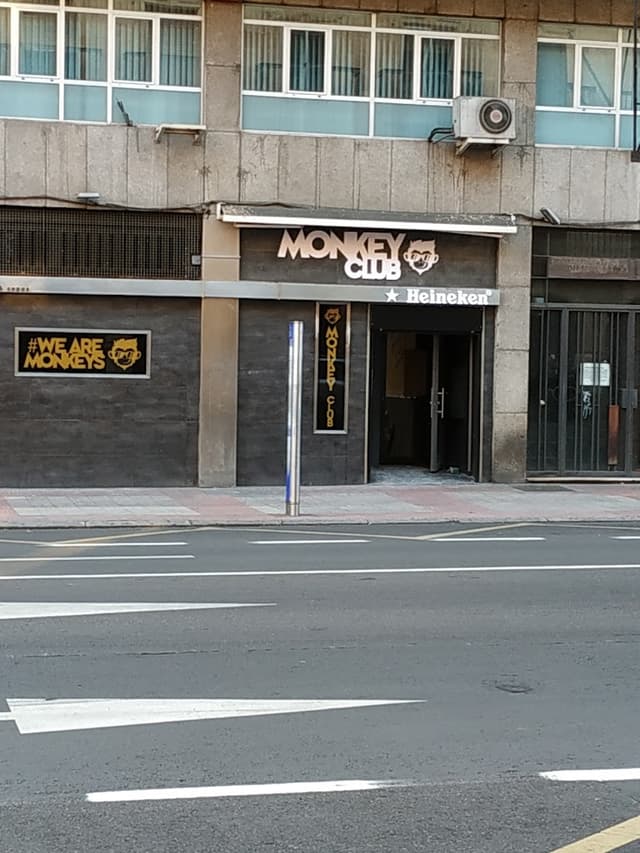
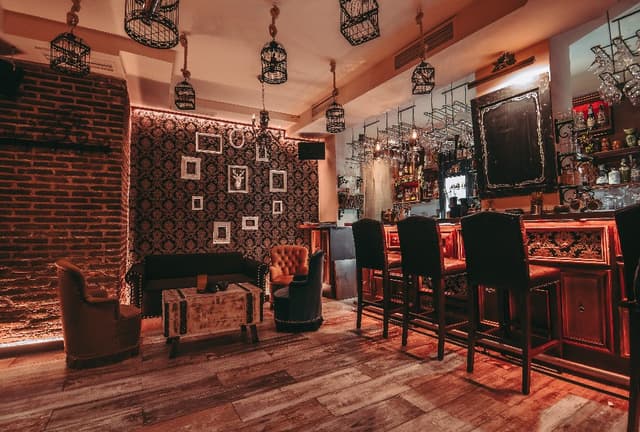
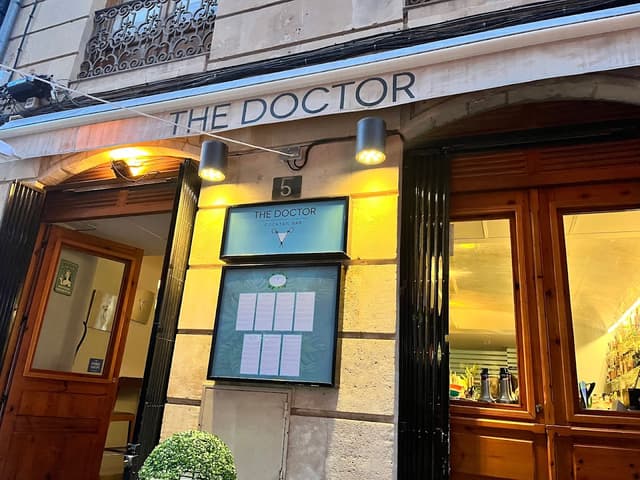
Transportation
How to reach Salamanca
Salamanca offers two main train stations to arrive from other major towns and cities, as well as a bus station.
I often use Omio to search, compare, and book trains. The app is user-friendly and straightforward, allowing me to compare trains, buses, and even flights. I can see routes anywhere in Europe.
The official website for the train lines across the country is Renfe:
The train station in Salamanca is located in the Vialia mall, where you can buy train tickets directly at the ticket window. Keep in mind that if you plan a last minute trip, you may not find the most ideal prices or times.
At Vialia there are a few cafés, shops and restaurants as well. A Carrefour supermarket that opens on Sundays too, and a cinema.
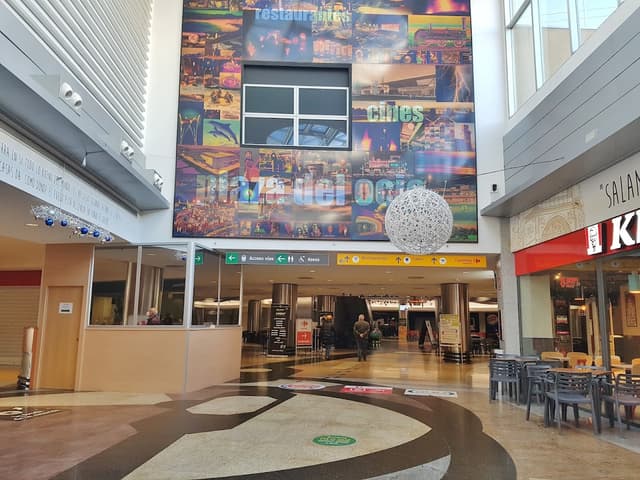
The bus station also hosts a few shops, bakeries, cafés and the likes. You can get your tickets here as well in the ticket windows, or online.
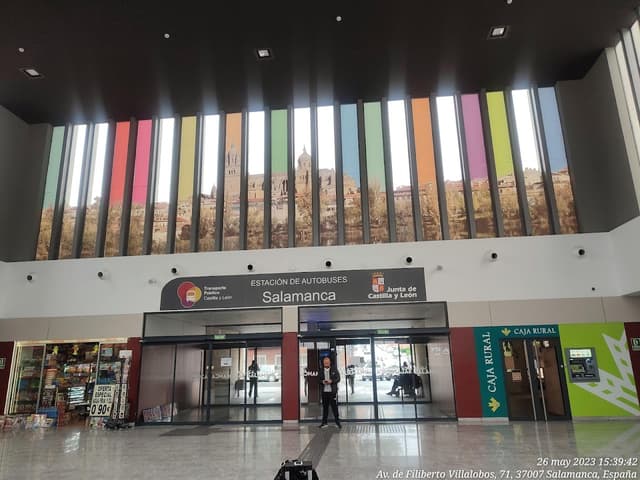
Online bus ticket options are Avanzabus, Flixbus and Omio as well:
Flixbus website link:
Cultural Traits and Etiquette
Common Etiquette
👋🏼 Greetings:
In Salamanca, it's customary to greet people with a handshake or a kiss on each cheek, depending on the level of familiarity. Use formal titles like "Señor", "Caballero" (Sir) or "Señora" (Madam) when addressing strangers or older individuals.
🍽️ Dining Etiquette:
When dining out, it's polite to wait to be seated by the restaurant door instead of barging in and waiting for everyone to be served before starting the meal. Keep your hands visible on the table, and refrain from resting elbows or slouching. It's customary to say "¡Buen provecho!", or "¡Que aproveche!" (Enjoy your meal!) before eating.
💤 Respect for Siesta:
Many shops and businesses in Salamanca observe the siesta tradition, closing for a few hours in the afternoon. Respect local customs by refraining from loud activities during this time and planning your schedule accordingly.
⏰ Punctuality:
Spaniards tend to have a relaxed attitude towards time, but it's still important to be punctual for appointments and social gatherings. Arriving a few minutes late is generally acceptable, but arriving excessively late may be considered rude.
💬 Language:
While many locals in Salamanca speak Spanish, some may also speak English. So, learning a few basic Spanish phrases can go a long way in showing respect for the local culture and facilitating communication.
At the end of this guide, in the Appendix section, I have added some basic phrases in Spanish as well as a few language app recommendations.
Tips for social interaction:
😎 Be friendly & approachable:
Spaniards are known for their warm and outgoing nature. Strike up conversations with locals in cafes, markets, or parks, and don't be afraid to ask for recommendations or directions.
〰️ Personal space:
On the other hand, while Spaniards are generally friendly and sociable, it's important to respect personal boundaries. Avoid standing too close or initiating physical contact unless invited to do so.
📍Embrace local customs:
Show interest in local traditions and customs, such as festivals, bullfighting, or flamenco. Participate respectfully and embrace the opportunity to learn more about Salamanca's cultural heritage.
🇪🇸 Learn some basic Spanish:
Even basic Spanish phrases can help break the ice and show respect for the local culture. Locals will appreciate your efforts to communicate in their language, even if you make mistakes.
Conclusion
Salamanca is a beacon of history, culture, and architectural splendour, beckoning travellers from far and wide to uncover its treasures. With its ancient university, stunning cathedrals, and vibrant plazas, Salamanca is a city where the past seamlessly intertwines with the present, offering a captivating tapestry of experiences for visitors to behold.
Stand at the threshold of Salamanca's enchanting realm and let curiosity be your guide and adventure your compass. Explore the centuries-old corridors of learning and lose yourself in the labyrinthine streets.
Whether you're a history buff, a culture enthusiast, or simply seeking to immerse yourself in the charm of Spanish life, Salamanca promises an unforgettable journey filled with wonder and delight.
Embrace the rhythm of Salamanca, where time slows down, and every moment celebrates life's simple joys. Soak in the beauty of its architecture and indulge in its culinary delights.
Finally, I would like to extend my heartfelt gratitude for joining me on this virtual journey through one of Spain's most enchanting cities. I hope that my travel guide has ignited your wanderlust and inspired you to add Salamanca to your list of must-visit destinations.
Let this guide be your companion as you delve into the rich tapestry of sights, sounds, and flavours that await you in Salamanca. ¡Bienvenidos a Salamanca! Welcome to Salamanca!
Appendix
Useful Spanish phrases
👋🏼 Greetings:
◦ ¡Hola! - Hello!
◦ Buenos días - Good morning
◦ Buenas tardes - Good afternoon/evening
◦ Buenas noches - Good night
❣️ Basic Courtesy:
◦ Por favor - Please
◦ Gracias - Thank you
◦ De nada - You're welcome
◦ Perdón - Excuse me
◦ Disculpe - Excuse me (formal)
🛵 Getting Around:
◦ ¿Dónde está...? - Where is...?
◦ ¿Cuánto cuesta? - How much does it cost?
◦ ¿Puede ayudarme? - Can you help me?
◦ Necesito un taxi - I need a taxi
◦ Necesito ir a... - I need to get to...
🍷 Dining Out
◦ La cuenta, por favor - The bill, please
◦ Quisiera reservar una mesa - I would like to reserve a table
◦ ¿Qué recomienda? - What do you recommend?
◦ ¿Podemos tener una mesa para (número) personas? - Can we have a table for (number of people)? For walk-ins.
🛍️ Shopping
◦ ¿Cuánto cuesta esto? - How much does this cost?
◦ ¿Aceptan tarjeta de crédito? - Do you accept credit cards?
◦ ¿Tienen este en otro color/talla? - Do you have this in another color/size?
◦ Me lo llevo - I'll take it
🗺️ Directions
◦ ¿Cómo llego a...? - How do I get to...?
◦ ¿Está lejos? - Is it far?
◦ Siga recto - Go straight ahead
◦ A la derecha/izquierda - To the right/left
🙋🏻 Common phrases
◦ Estoy perdido/a - I'm lost
◦ No entiendo - I don't understand
◦ ¿Habla inglés? - Do you speak English?
◦ ¿Puede repetir, por favor? - Can you repeat that, please?
🚨 Emergencies:
◦ ¡Ayuda! - Help!
◦ Necesito un médico - I need a doctor
◦ Llame a la policía - Call the police
◦ ¿Dónde está el hospital más cercano? - Where is the nearest hospital?
A free app I use myself to practice languages is Duolingo, there is basic free plan that does the trick and is very easy to use for any level, and maybe almost every language out there.
Embassies & consulates in Spain
Take note of the following: Below is a list of embassies and consulates commonly visited by individuals in Salamanca. All of them are located in Madrid, which is about a 2-hour drive from Salamanca. It is crucial to research their contact information, exact addresses, and any other relevant details before travelling.
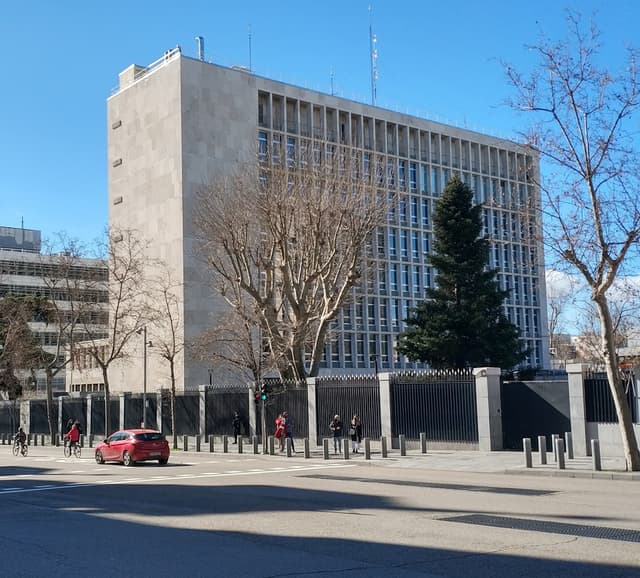
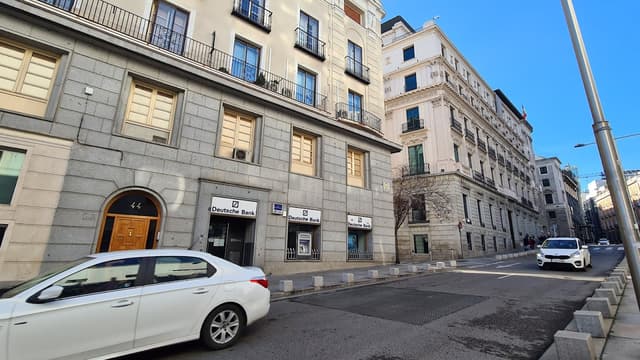
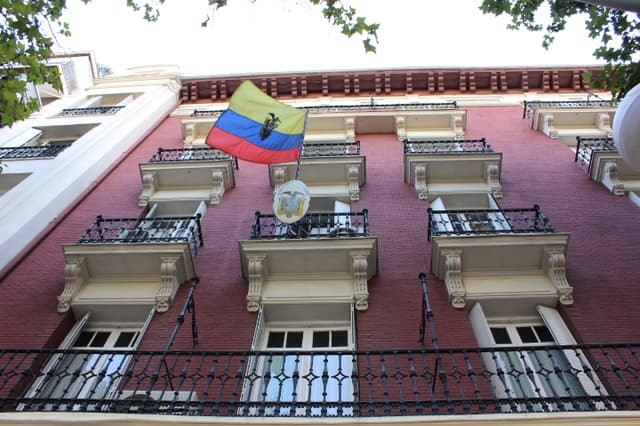
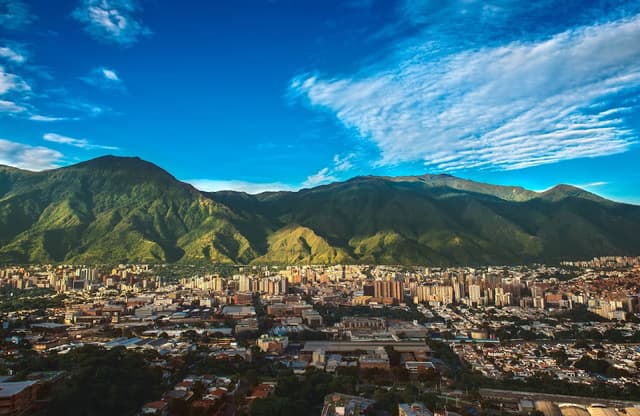
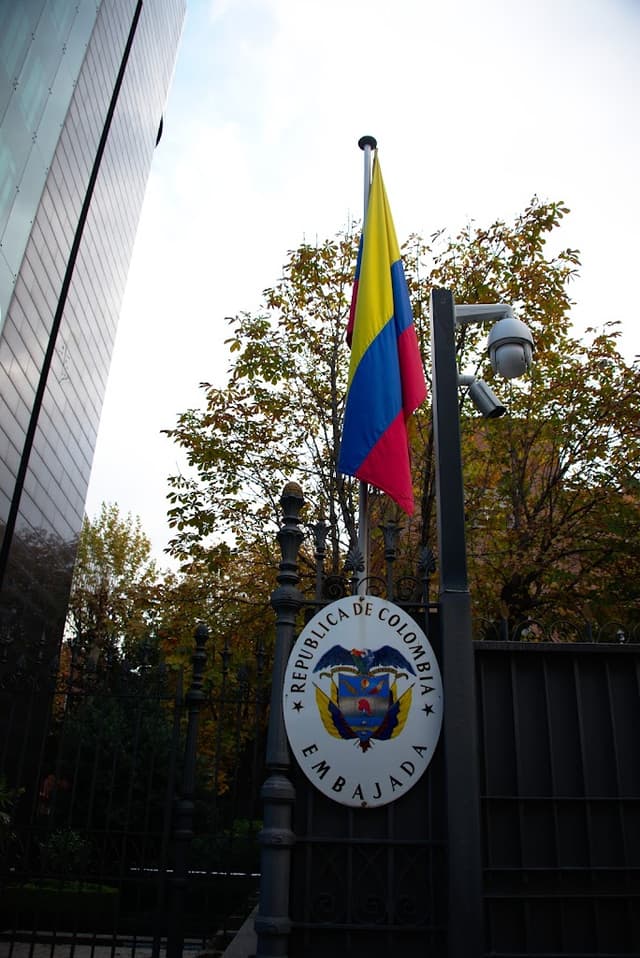
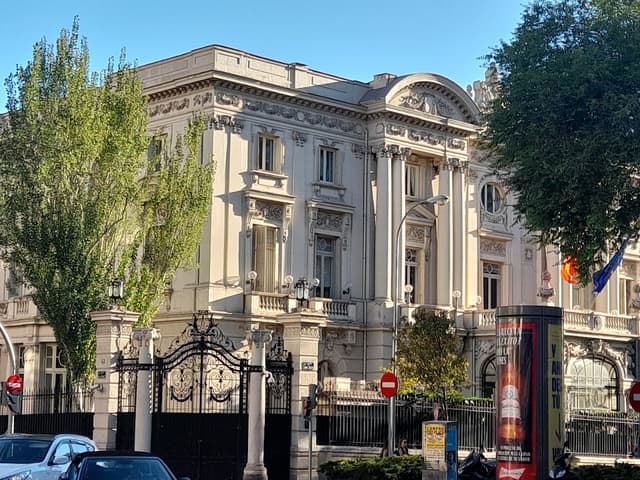
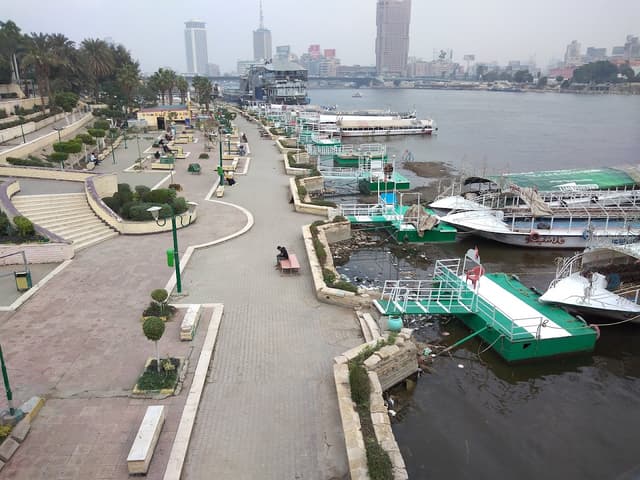
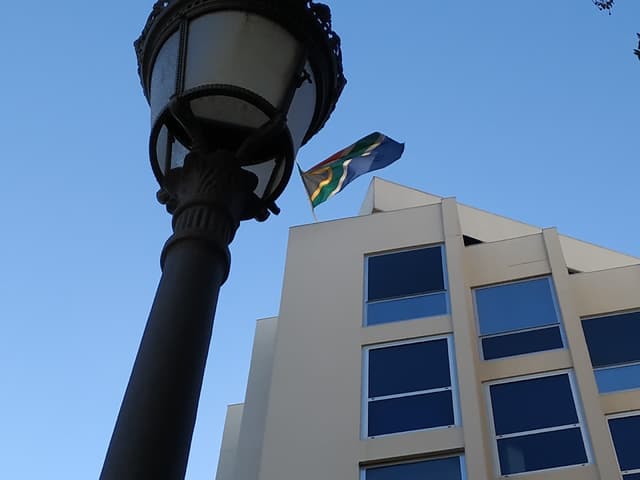
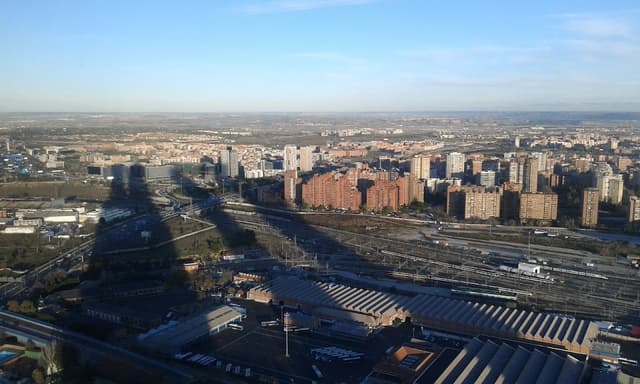
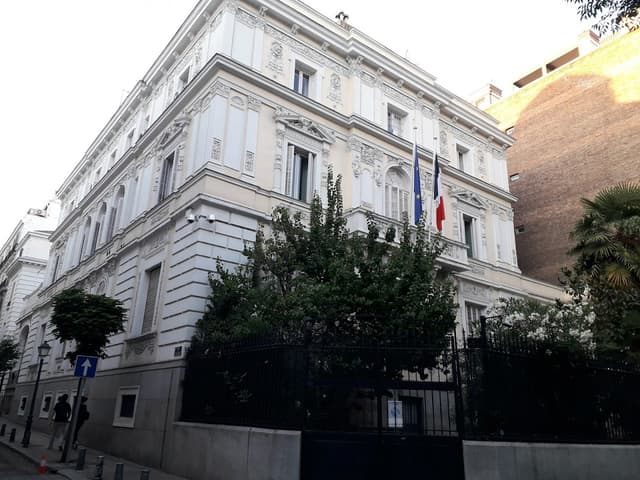
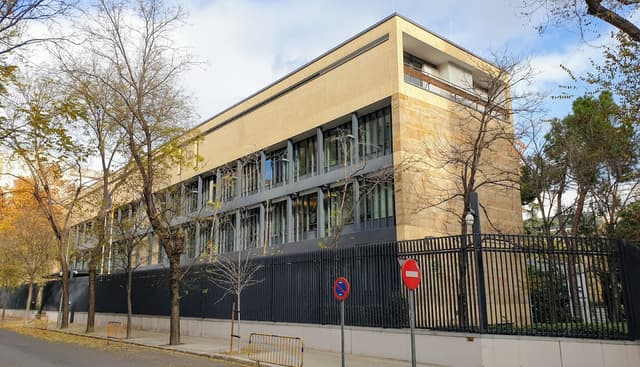
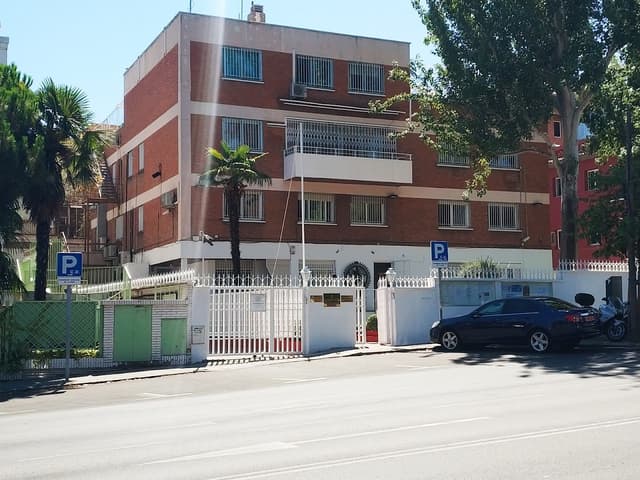
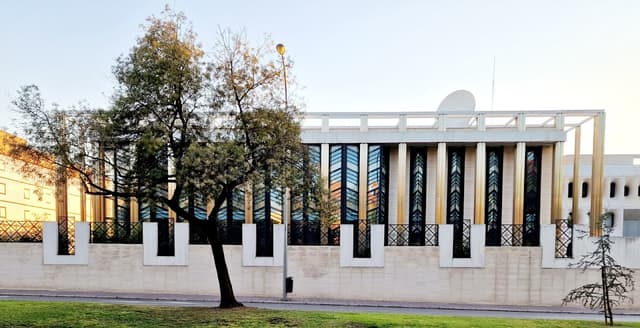
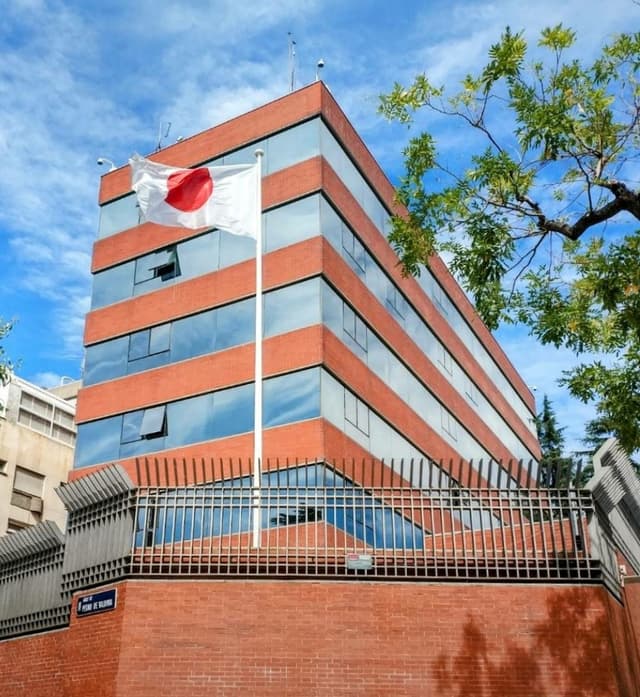
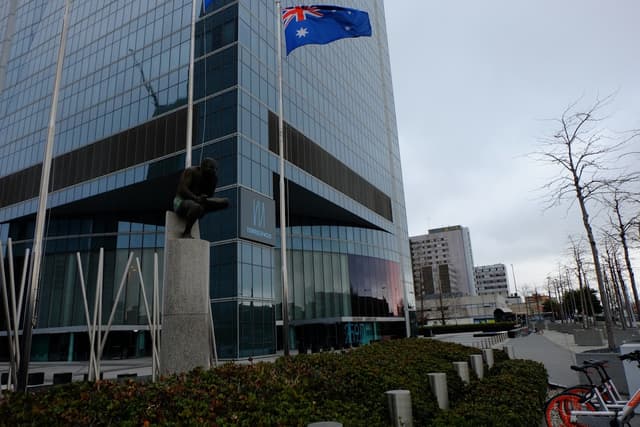
The home for unique & authentic travel




